To promote academic exchange among doctoral students from various institutions and encourage original research, the 11th Peking University Sociology Doctoral Student Forum was held on October 26, 2024, in Room 133, Science Building No.5, Peking University. 14 papers were selected for presentation. The forum was divided into two sessions, morning and afternoon, consisting of six units in total.
The forum commenced with opening remarks from Assistant to the Head of the Department of Sociology, Tian Geng. Professor Tian Geng shared his insights on how young students can form future academic communities. He emphasized that the formation of an academic community requires doctoral students to learn to appreciate the research of their peers, especially those of their age, from the outset of their academic journey, and to offer candid yet respectful criticism. On the academic path, doctoral students need to find colleagues, and their recognition and respect for these colleagues are based not only on the quality of each other's research but also on their sincerity and integrity. Finally, the construction of an academic community requires both institutional and personal support. Only by implementing the academic traditions and the conduct of excellent scholars as habitually adhered-to principles can the construction of an academic community be possible.
After the opening remarks, all participants took a group photo to commemorate the event.
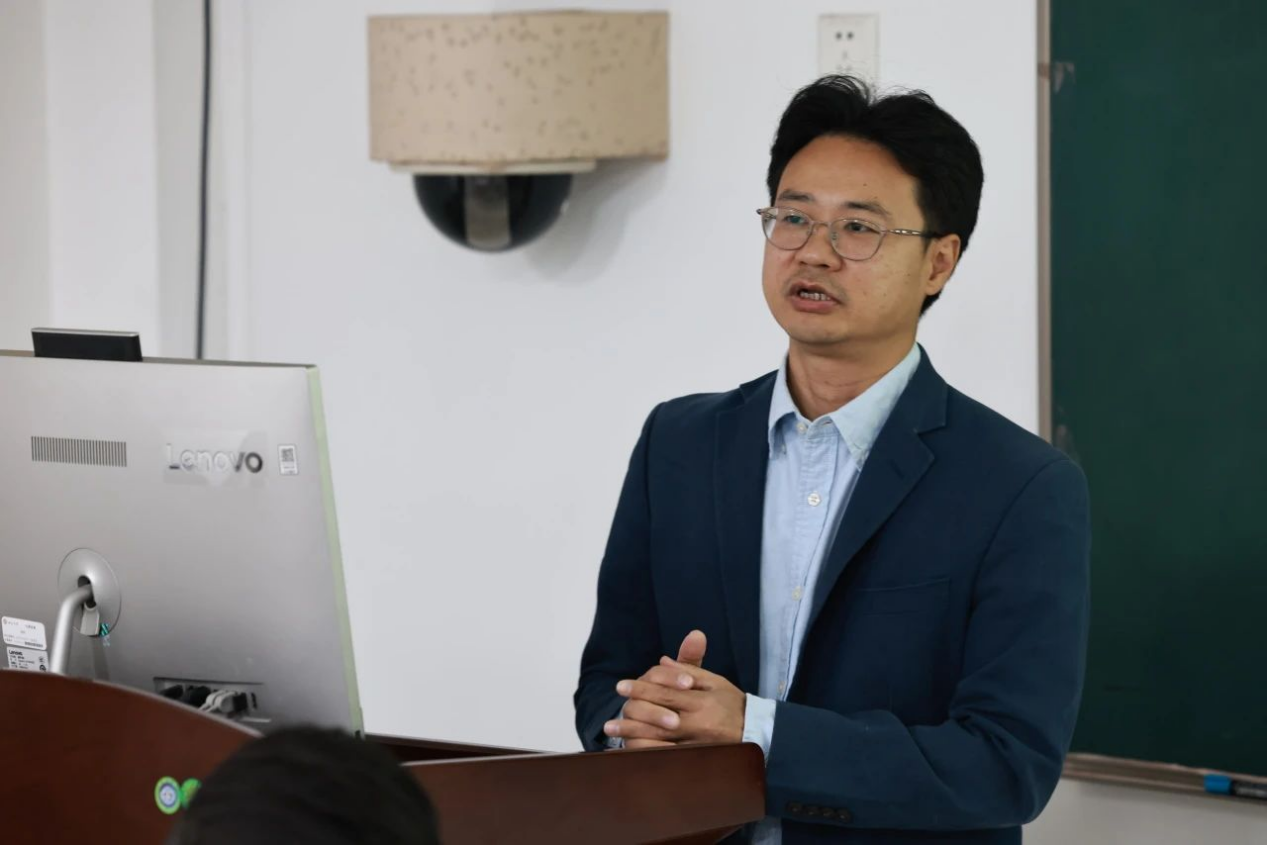
Prof. Tian Geng Delivering Opening Speech
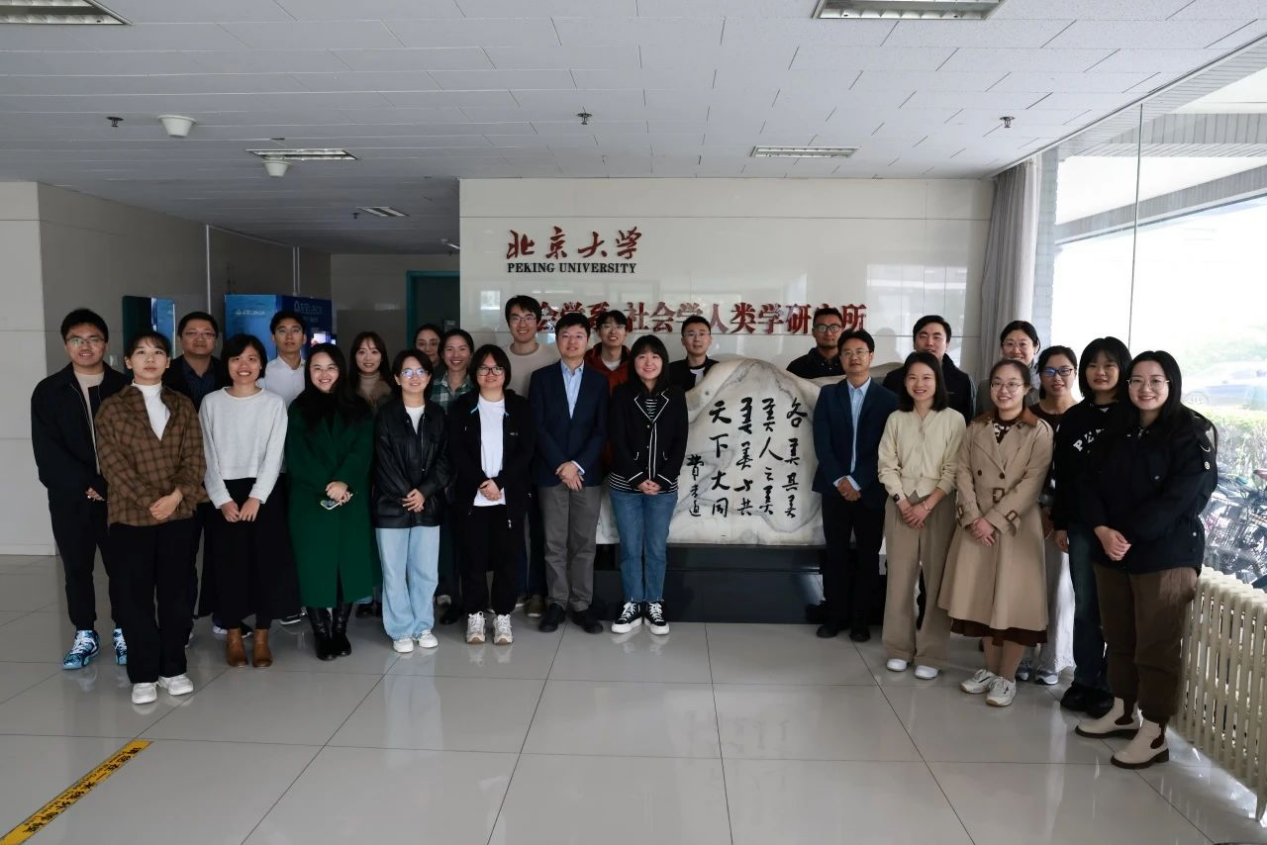
Group Photo
Unit 1: Fertility and Education
At 9:30 AM on October 26th, the first session of the forum, "Fertility and Education," has commenced. The moderator for this session was Professor Fan Xinguang from the Department of Sociology at Peking University. He, along with Professor Dong Hao from the Guanghua School of Management at Peking University, served as the discussants.
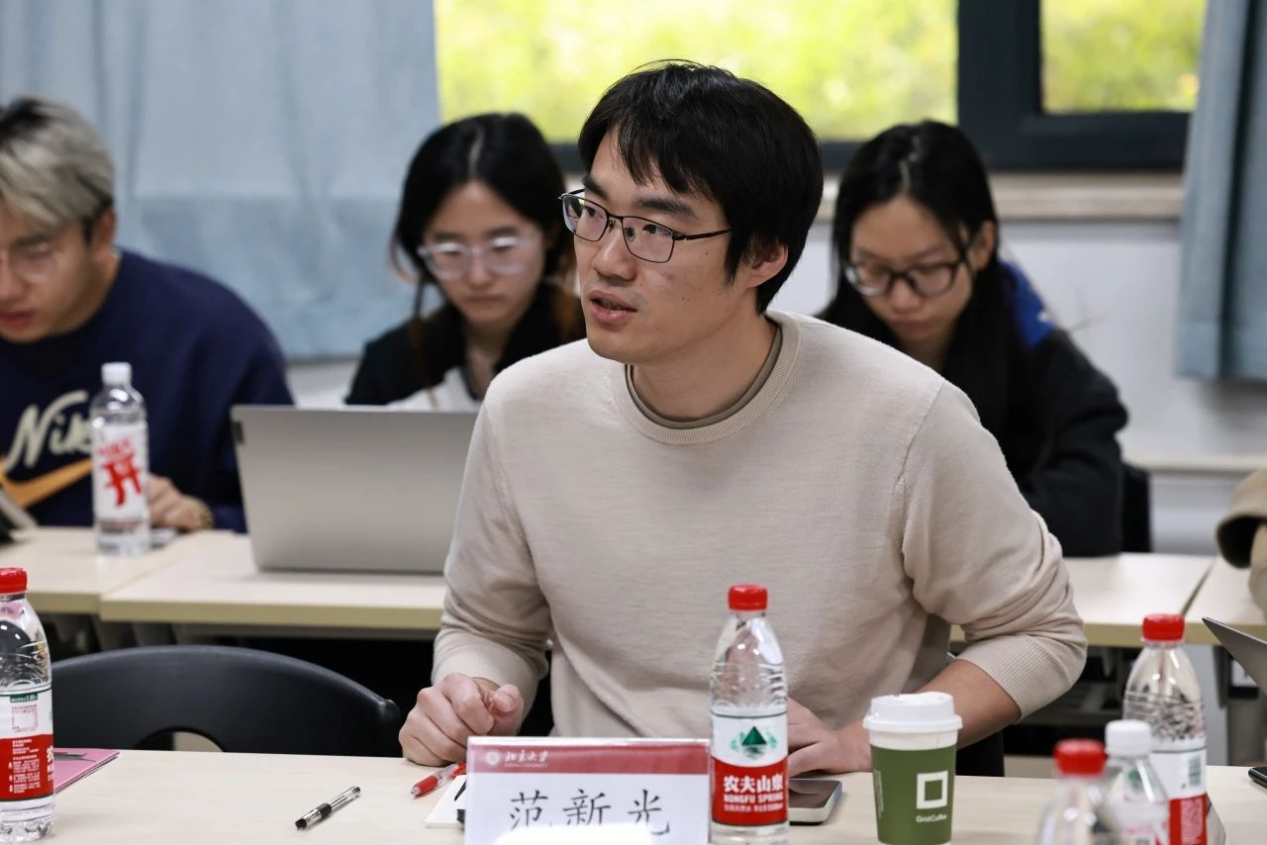
Prof. Fan Xinguang
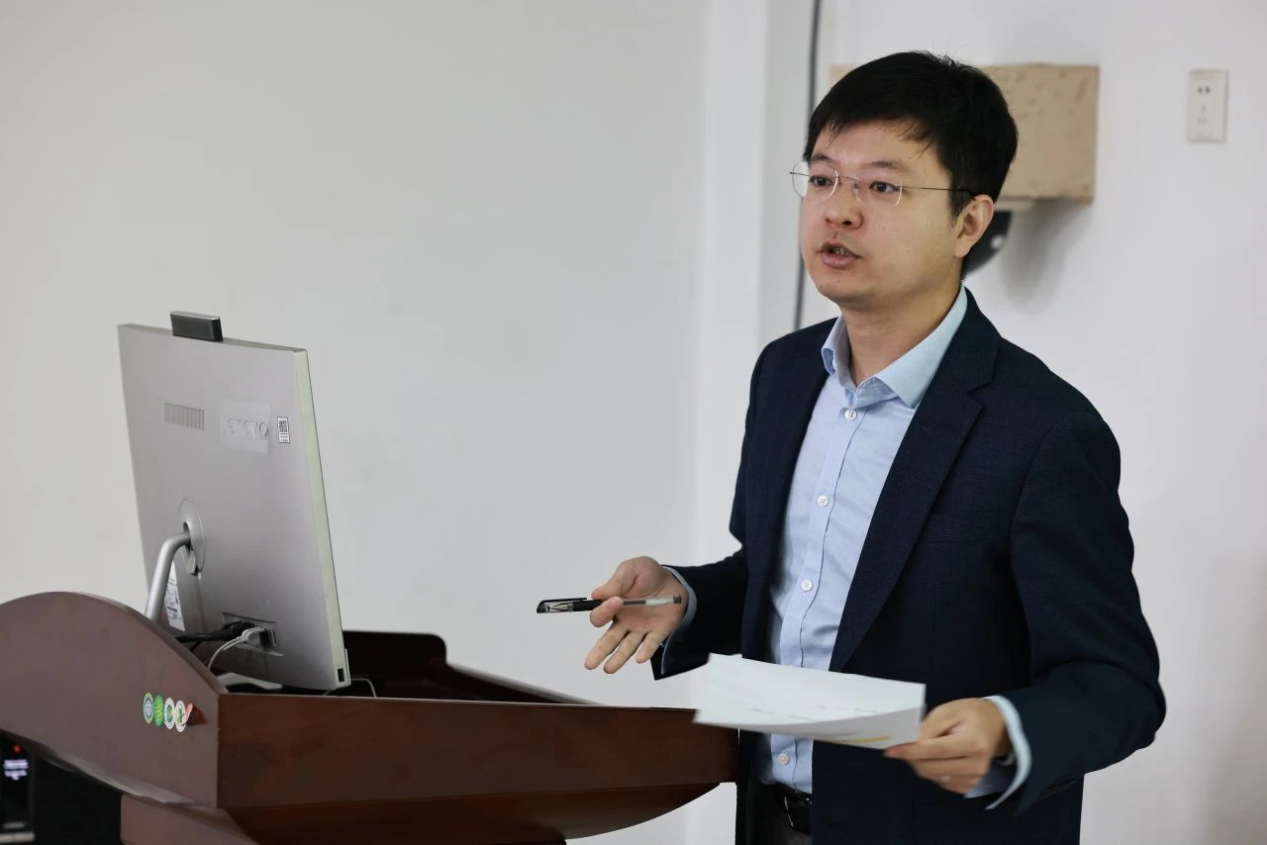
Prof. Dong Hao
Ph.D. student Liu Xueling from Minzu University of China commenced the first session with her presentation titled "Childhood Experiences and Fertility Behavior: A Sequence Analysis Based on the 2014 China Health and Retirement Longitudinal Study Data." Leveraging data from the 2014 CHARLS, her study primarily explored the correlation between one's childhood experiences and subsequent fertility behavior. The dependent variable, fertility behavior, was operationalized as fertility trajectory, with cluster analysis employed to categorize eight distinct fertility patterns. The independent variable, childhood experiences, was characterized by family atmosphere, family relationships, and parental attitudes and behaviors.
Key findings indicated that in a positive family atmosphere, individuals with mentally healthier parents were less likely to reject having children; those with healthier parents tended to prefer having multiple children. The relationship between an individual and their parents did not significantly impact fertility behavior; however, a better relationship between parents was associated with a higher likelihood of their children remaining childless after marriage. Additionally, less parental favoritism was linked to a greater acceptance of having multiple children, and a lower preference for male children corresponded to a weaker gender bias in fertility behavior.
Professor Dong Hao noted that the empirical data of the study significantly overlapped with the era of the one-child policy, diverging from the policy context the research aimed to address. He emphasized the need to clearly define the generation under scrutiny within the study's framework.
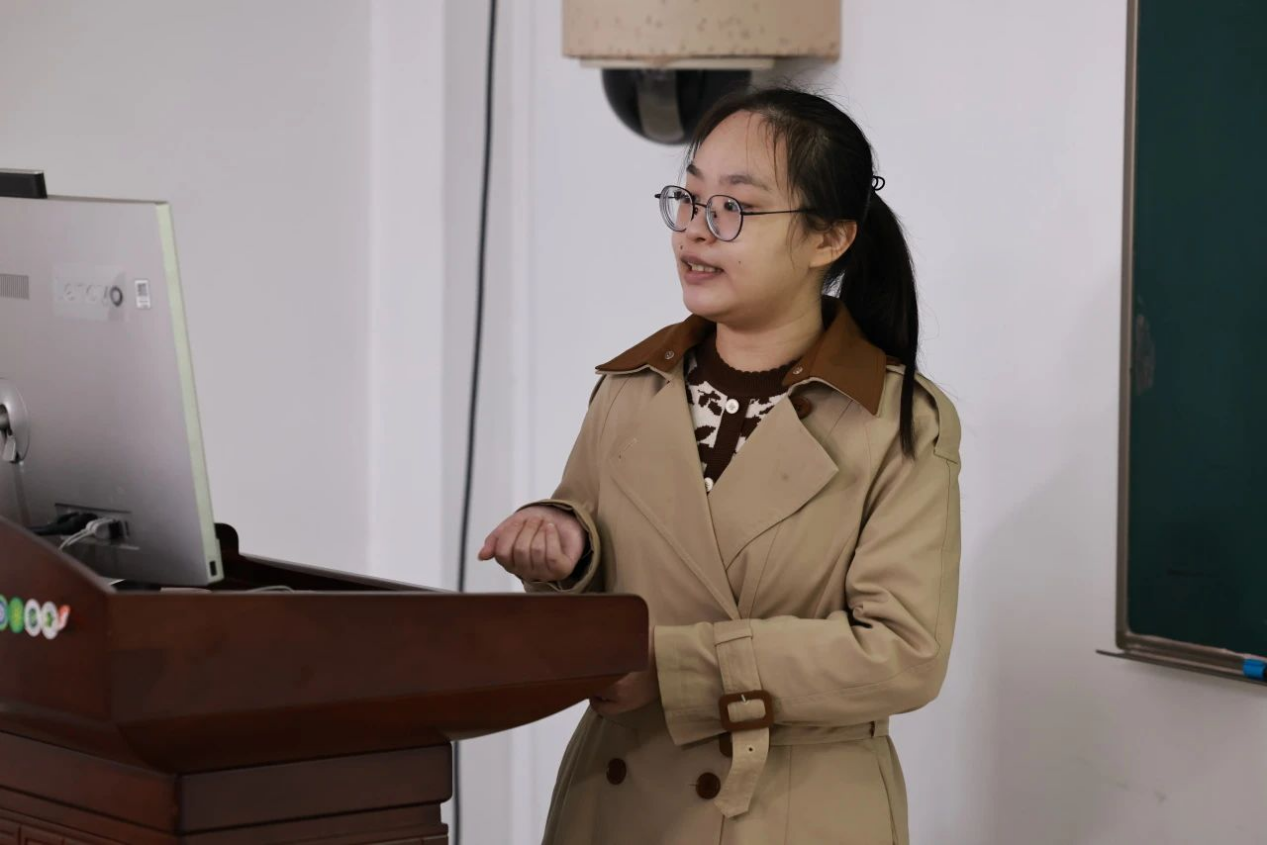
Liu Xueling
Next, Ph.D. candidate Lin Miaorong from Zhejiang University presented a collaborative paper with her fellow Ph.D. candidate Chen Jiacheng titled "The Changing Trends in Childrearing under the Education Expansion Policy: A Dynamic Analysis Based on Age, Period, and Cohort Effects." While previous studies on education expansion policies have largely focused on social stratification and mobility perspectives, this study examines the impact of educational policy expansion on nurturing behaviors within the family. Utilizing data from the China Health and Nutrition Survey (CHNS), the study operationalizes childrearing as time spent on childcare, with independent variables including the age of the caregiver, the generation of the caregiver, and the period before and after the education expansion. Employing a multilevel cross-classified random effects model, the study finds that parents' time investment in childcare declines with age; it increases with the birth cohort of the parents; and the education expansion policy not only increases parents' time investment in childcare but also widens the gender division of childcare responsibilities. In the discussion session, Professor Fan Xinguang pointed out the need to distinguish between direct and intergenerational childcare in the context of changes before and after the education expansion and to clarify the reasons for the emergence of age, period, and cohort effects.
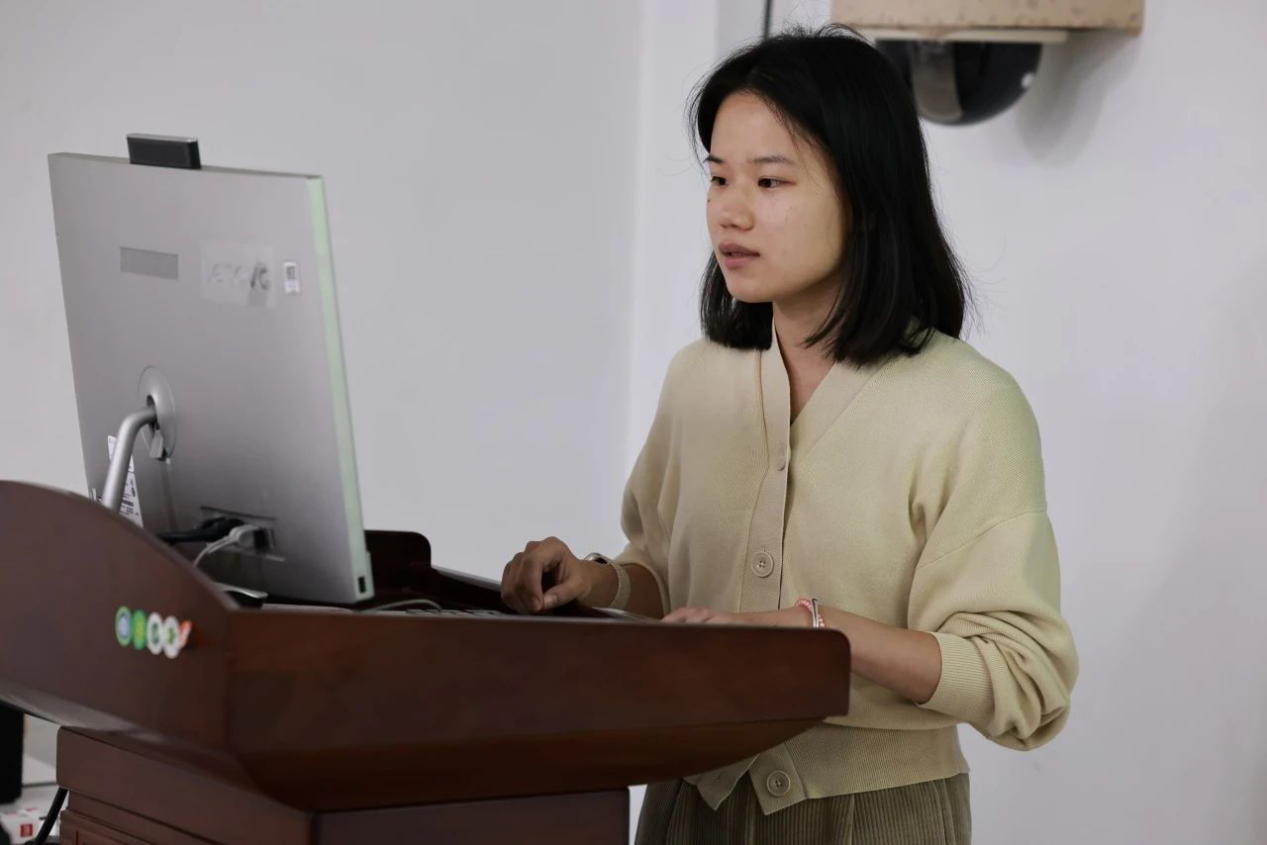
Lin Miaorong
Finally, Lin Xuanhao, a graduate student from Fudan University, presented a report titled "Urban Differences in Returns to Human Capital: A Perspective from Population Scale." The study used data from the 2018 National Dynamic Monitoring Survey of Migrant Population's Health and Family Planning (CMDS), taking the logarithm of workers' income as the dependent variable, years of education as the independent variable, and city population scale as the moderating variable. Employing a multilevel linear regression model, the study investigated the impact of city population scale on the returns to workers' education. The study found that population agglomeration plays a moderating role in the relationship between workers' education level and income level—the higher the level of population agglomeration, the higher the rate of return to education; population agglomeration mainly affects educational returns through the population scale effect rather than the density effect; population agglomeration primarily enhances the educational returns for workers with education levels above high school, with little impact on workers with compulsory education levels; and the scale effect of population agglomeration only comes into play when it reaches a certain level. In the discussion session, Professor Dong Hao emphasized the need to refine the study design and focus on the impact of population scale on educational returns.
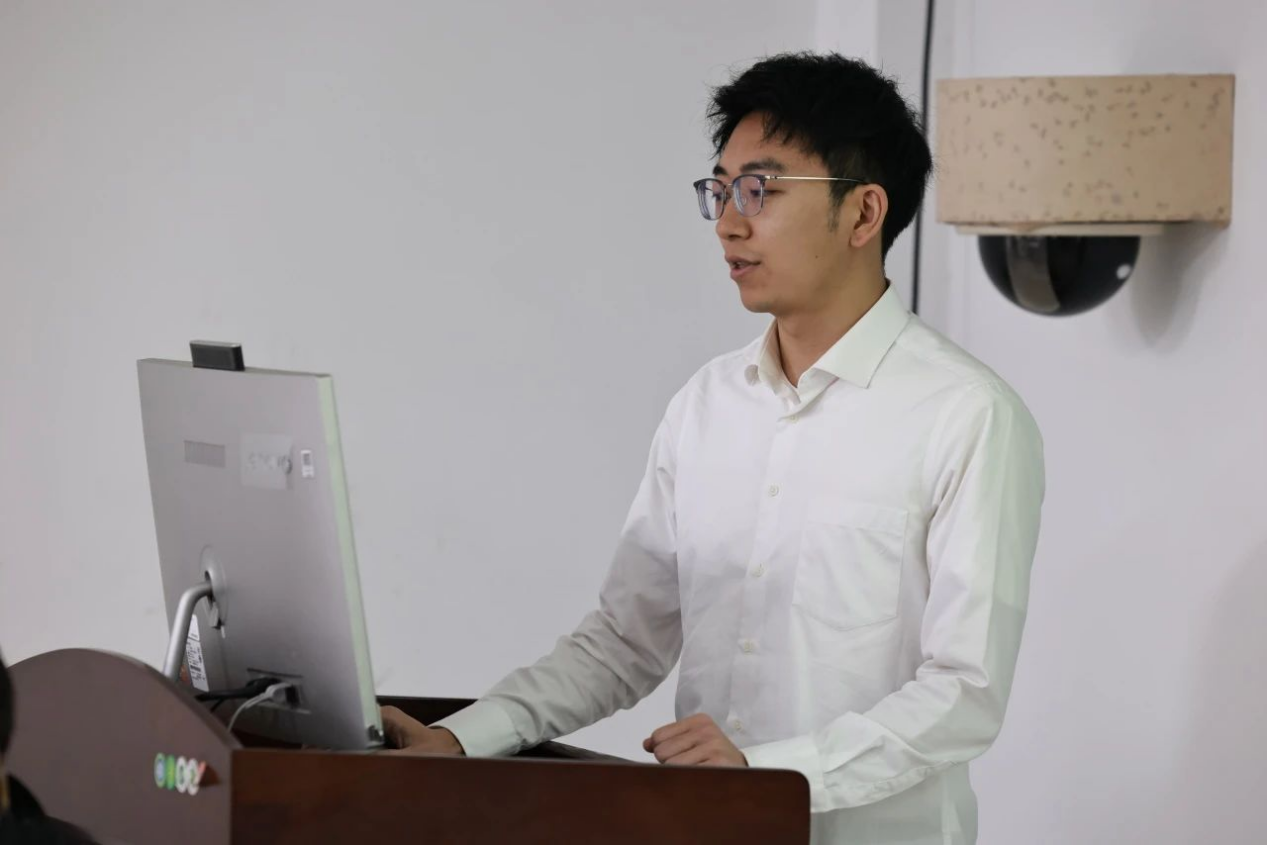
Lin Xuanhao
After all the paper presentations and discussions in this session were concluded, Professor Fan Xinguang and Professor Dong Hao awarded the "Huiguang Award" for outstanding paper to Ph.D. candidates Lin Miaorong and Chen Jiacheng from Zhejiang University for their co-authored paper "The Changing Trends in Childrearing under the Education Expansion Policy: A Dynamic Analysis Based on Age, Period, and Cohort Effects."
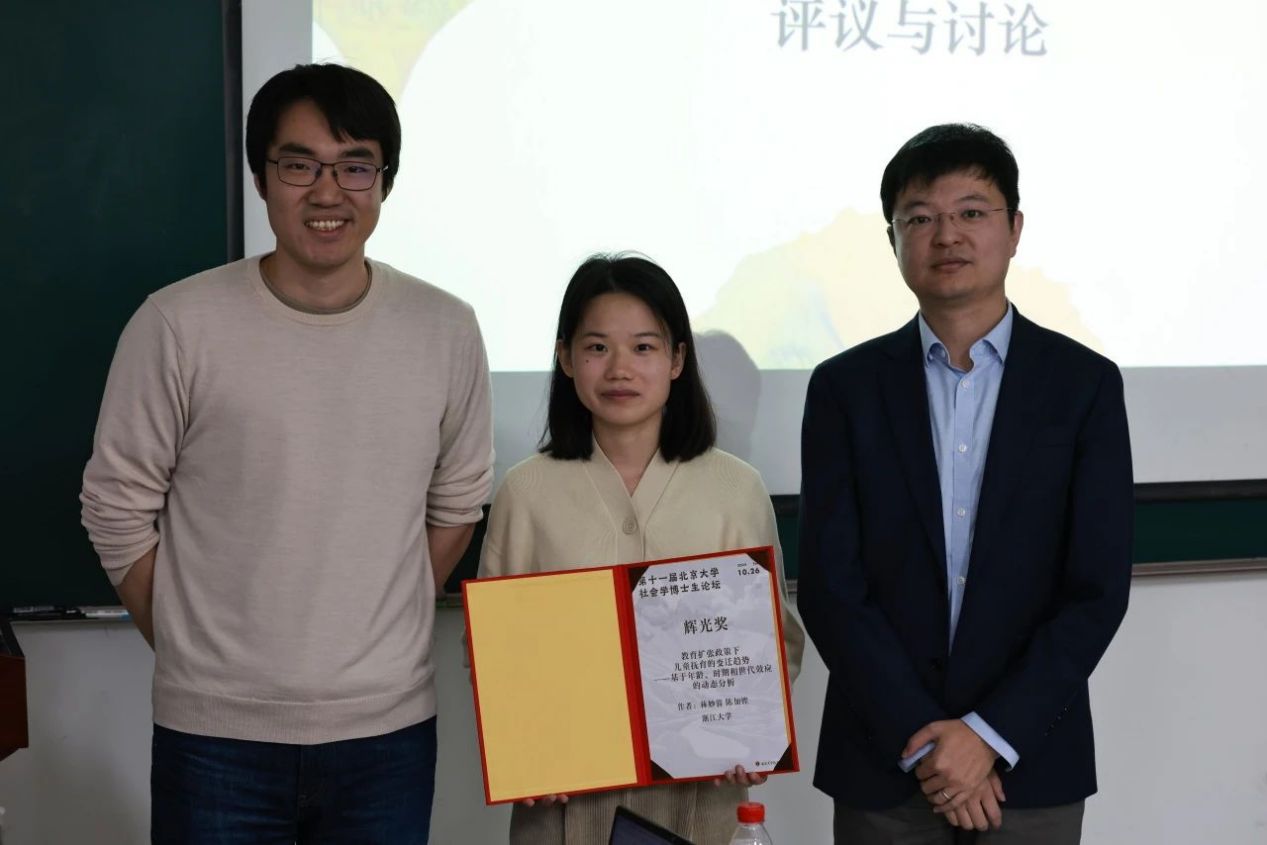
Award for Unit One
Unit 2: Community and Governance
The second session of the forum, themed "Community and Governance," was facilitated by Professor Chen Hai Ping from the Department of Sociology at Peking University. Professor Chen Hai Ping and Professor Wang Juan, also from the Department of Sociology at Peking University, served as discussants.
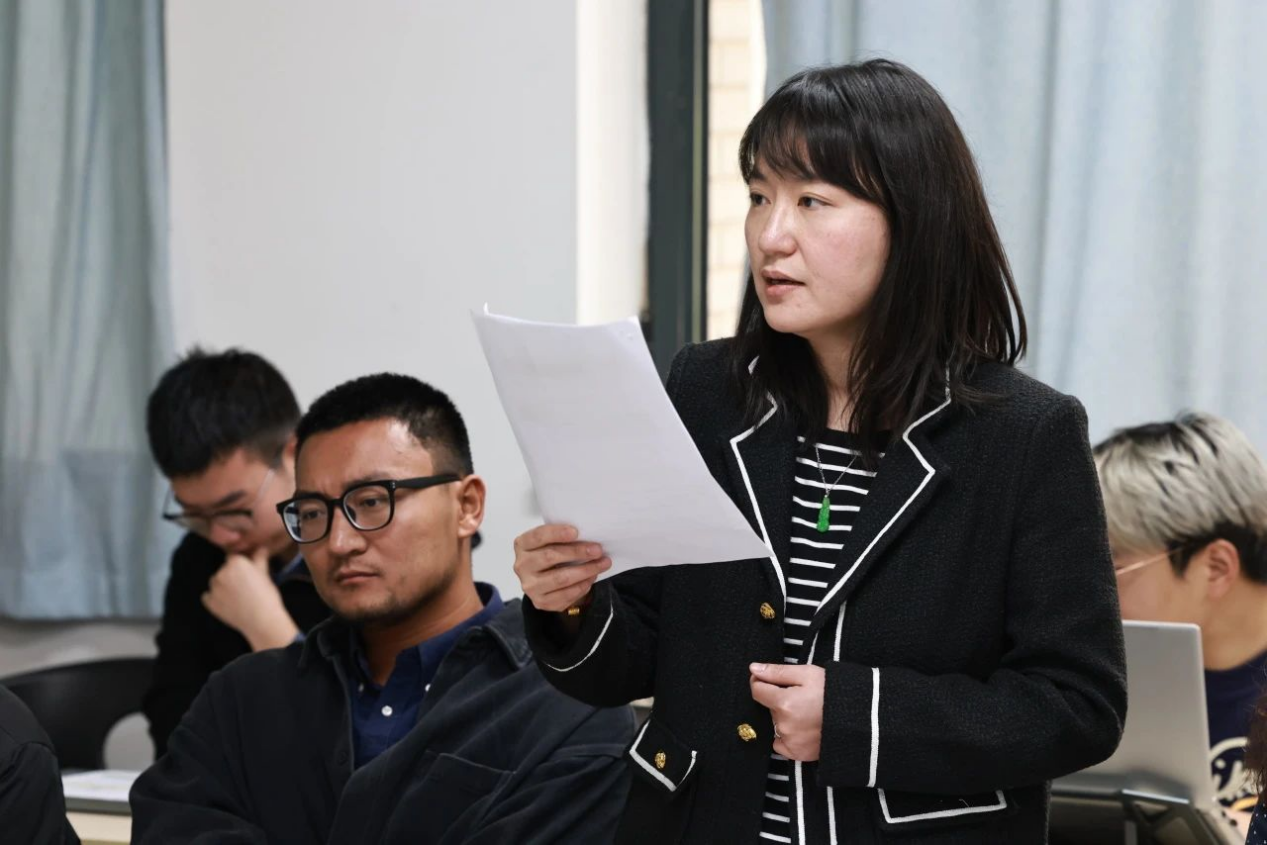
Prof. Chen Haiping
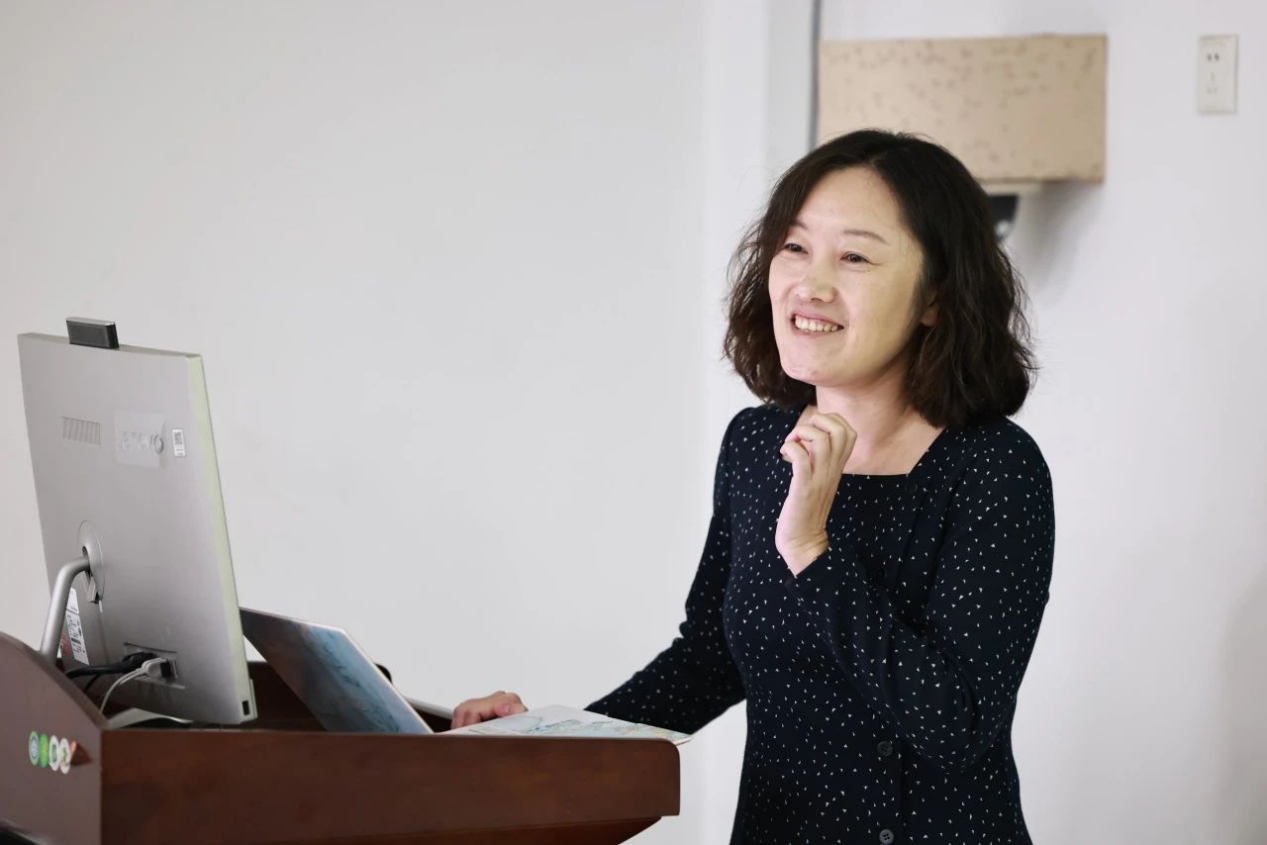
Prof. Wang Juan
First, Ph.D. candidate Hua Zhe from Xiamen University presented his research titled "‘Regulation’ and ‘Reorganization’: Urban Spatial Governance Practices for the ‘Sanhe’ Youth Migrant Workers." The study analyzed the spatial governance practices targeting the "Sanhe Youth" in 2017 and 2020 through policy text analysis and interviews, exploring the spatial interaction between the migrant worker group and urban governance, as well as the tensions involved. The study found that the logic of the first spatial governance could be summarized as "regulatory governance," not seeking to change the spatial pattern; the second could be summarized as "spatial reorganization," transferring the workforce through space division and reconstruction, creating new low-cost living spaces, while the old urban spaces gradually gentrified. This essentially reflects the tension between the demands of urban innovative productivity and the needs of old labor techniques. In the discussion segment, Professor Wang Juan suggested that the study should precisely define the research group and consider the differences and connections between the "Sanhe Youth" and the new generation of migrant workers. Professor Chen Hai Ping pointed out that the distinction between vulnerable groups and governance targets still needs clarification.
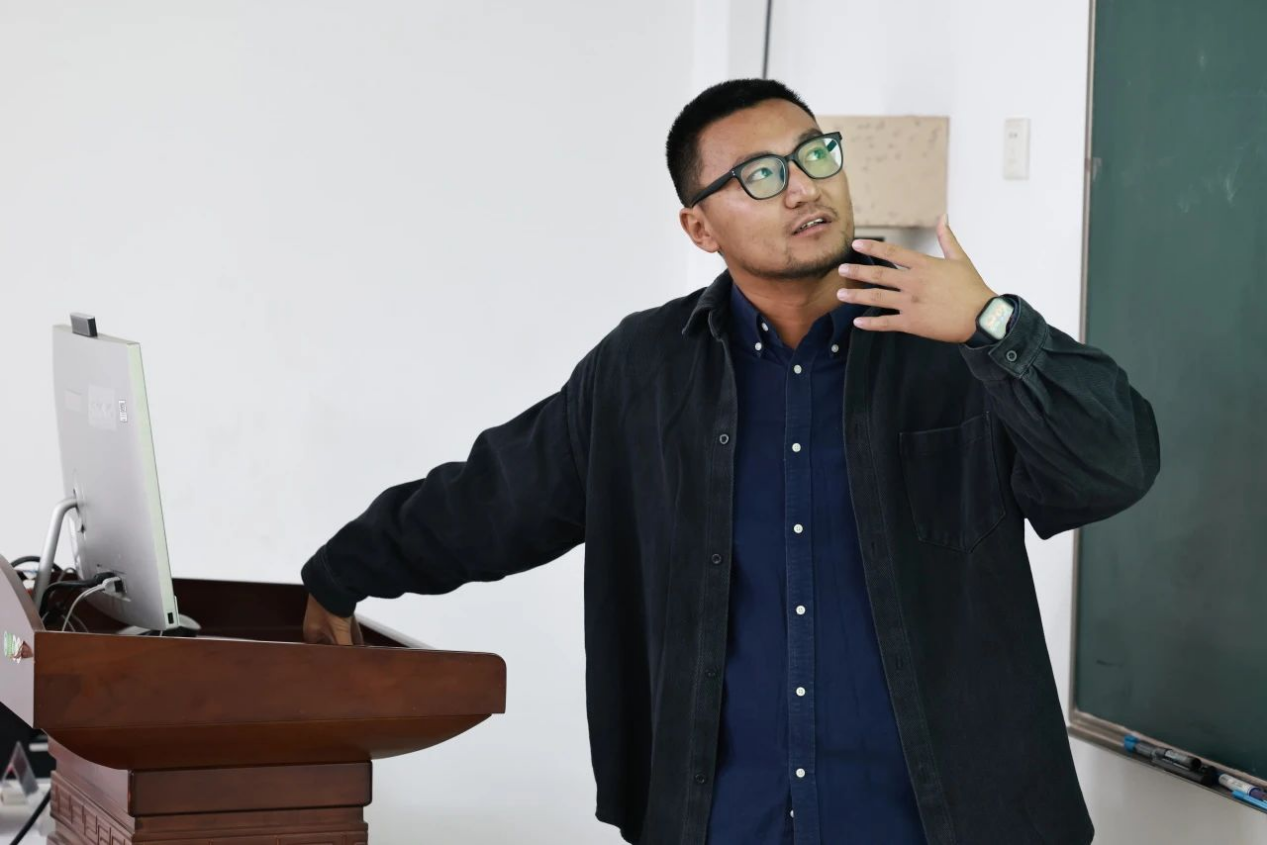
Hua Zhe
Next, Ph.D. candidate Wu Jia Jun from Nankai University presented his research titled "From ‘Service Objects’ to ‘Governance Forces’: The Organizational Logic and Subjectivity Shaping Mechanism of New Employment Forms Labor Participating in Community Governance." The study, using food delivery riders as an example, focused on the role of new employment groups in grassroots governance. The study found that through three actions—re-organization, self-organization, and skills training—new employment workers could build subjectivity by participating in community governance. In the discussion segment, Professor Wang Juan noted that the paper should present more stories with the materials. The paper should also differentiate between the organization of riders and the organization of communities and reconsider the definitions of some key concepts. Professor Chen Hai Ping believed that when using concepts, specific assessment criteria should be provided. Additionally, the study mainly focused on the commonalities of community grassroots governance and should supplement the discussion on the differences in community grassroots governance to illustrate how communities themselves influence the participation of new employment groups in governance.
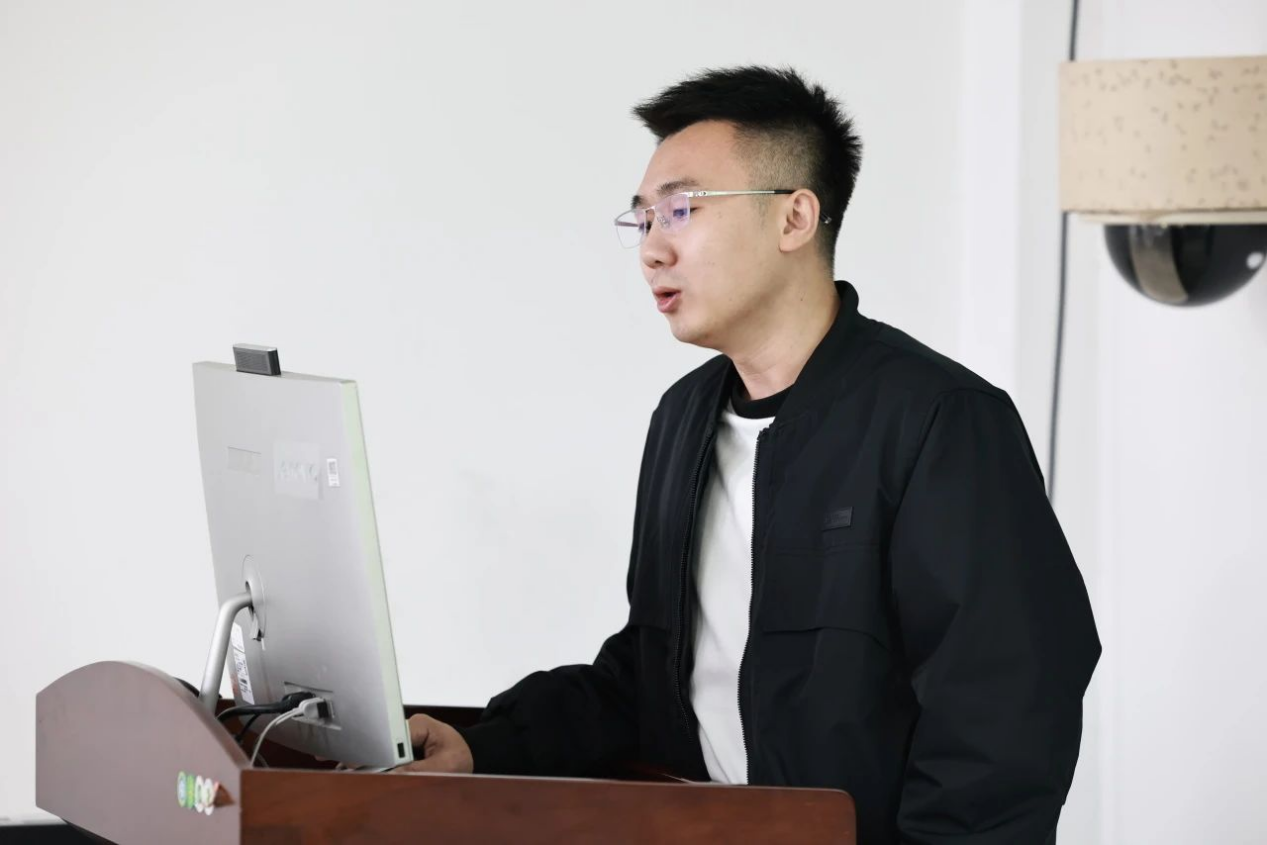
Wu Jiajun
Unit 3: Organization and Ethics
The third session of the forum, themed "Organization and Ethics," was hosted by Professor Chen Long from the College of Humanities and Development Studies at China Agricultural University. Professor Chen Long and Professor Xie Wen from the Department of Sociology at Peking University served as discussants.
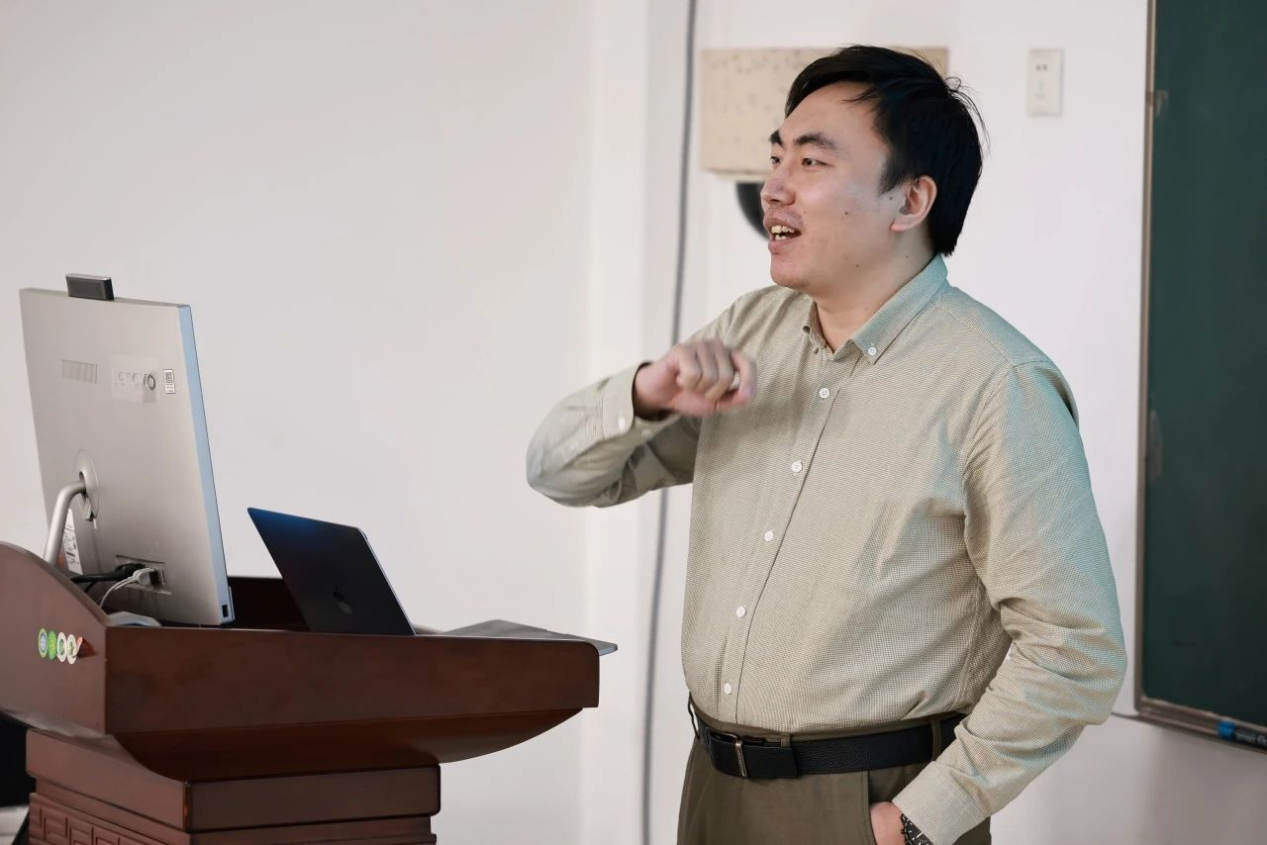
Prof. Chen Long
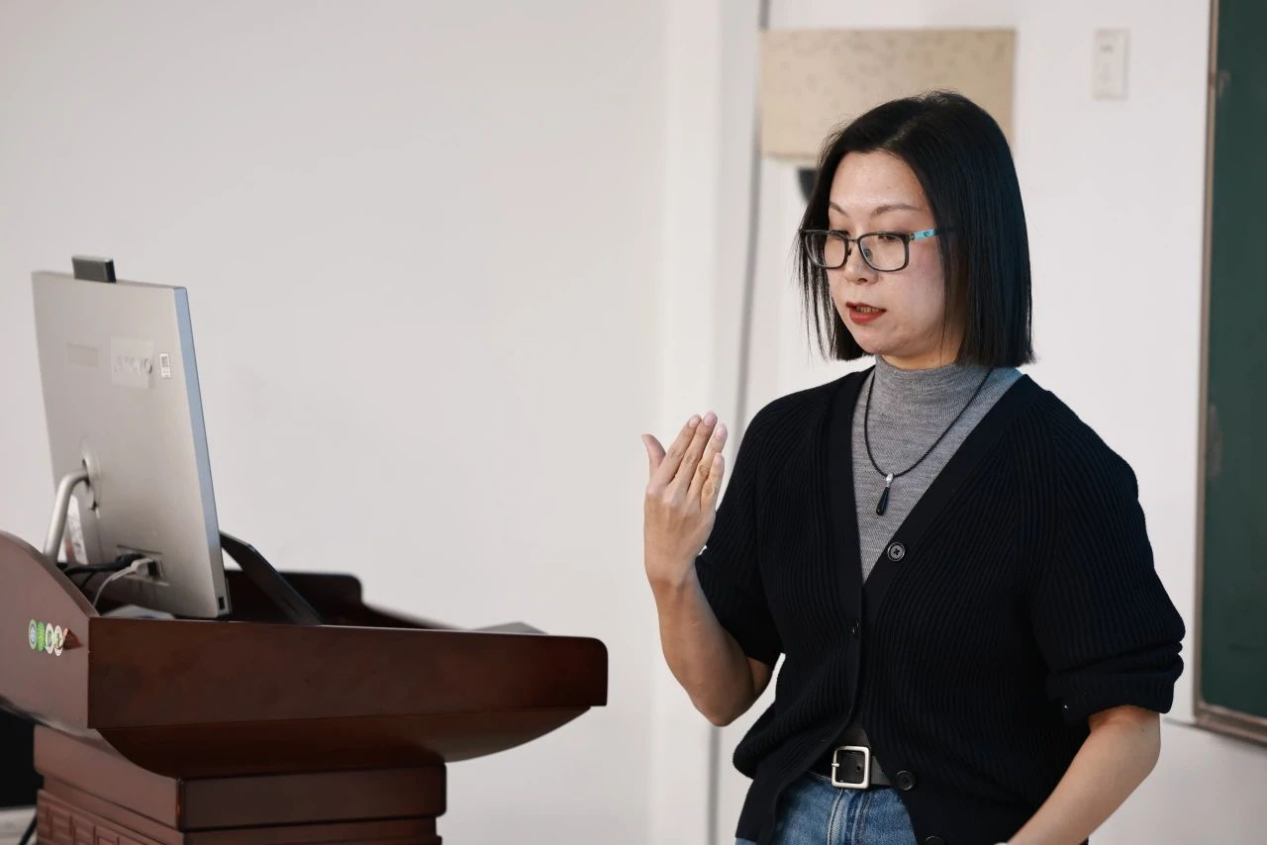
Prof. Xie Wen
First, Ph.D. candidate Wan Kexin from Huazhong University of Science and Technology shared her paper titled "Trapped-Style Discipline: Control Methods and Processes of Out-of-Place Pyramid Scheme Organizations." The study, drawing on Foucault's "disciplinary power," analyzed the manifestations of "disciplinary power" in out-of-place pyramid schemes. Guided by grounded theory and using NVivo12 software, the study coded and analyzed over 250,000 words of research materials from 25 cases selected from the internet Q&A platform "Zhihu." The results revealed that through four disciplinary methods—emotional control, thought control, information control, and behavioral control—out-of-place pyramid schemes formed a "trapped-style discipline." In the discussion segment, Professor Chen Long suggested that the article should define the relationships between the four control methods and their relationship with "body," "mind," and "heart." Additionally, the article should address the question of why people fall into pyramid schemes. Professor Xie Wen pointed out that the article needs to elevate the analytical dimension and clearly present the dialogue with Foucault to avoid overshadowing empirical analysis with theoretical analysis.
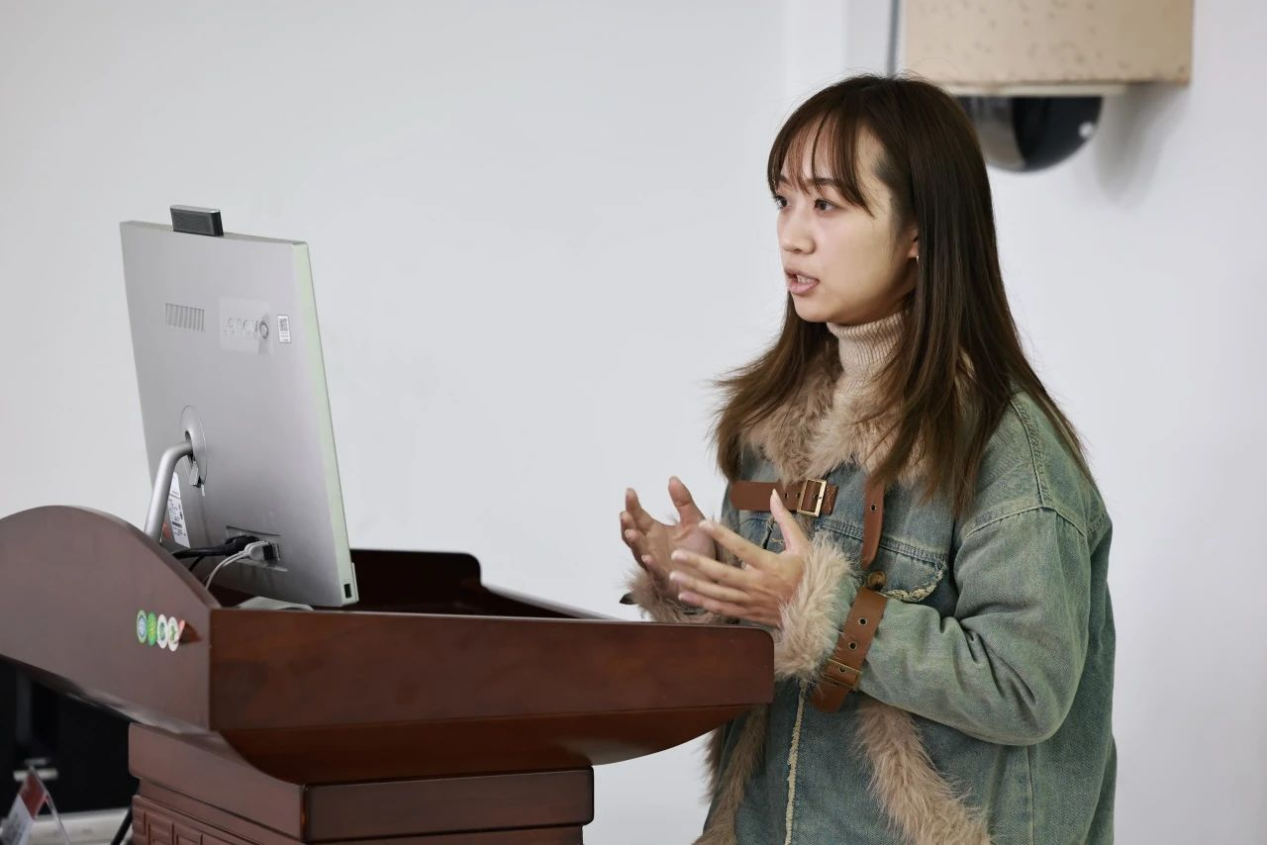
Wan Kexin
Then, Ph.D. candidate Sun Yixuan from Fudan University shared her article titled "Forging the 'Double Helix' Labor Ethics—An Analysis Based on the People's Daily May 1st Editorials (1952-2024)." The study focused on the question of what kind of labor ethics the country has constructed since its founding. Using the LDA (Latent Dirichlet Allocation) topic model, the study analyzed the "May 1st Editorials" section of the People's Daily from 1952 to 2024 and summarized four major themes over time: "Revolutionary Struggle," covering significant military and political events in the early years of the People's Republic of China; "Reform and Construction," covering several key periods of economic construction and adjustment before 1979; "Reform Exploration," between 1982 and 2002; and "Creation and Transformation," mainly distributed after 2003. Looking at the evolution of labor ethics, the country has experienced a process dominated by revolutionary political discourse, led by revolutionary economic discourse, with traditional discourse unfolding within revolutionary discourse, and finally forming a "double helix" labor ethics discourse. In the discussion segment, Professor Chen Long reminded the author to distinguish between similar discourses presented in different historical stages. Professor Xie Wen noted that the study's use of theory has not reached the level of Alexander's "cultural" concept, and it has not explained how the state's shaping of labor ethics affects society's labor cognition.
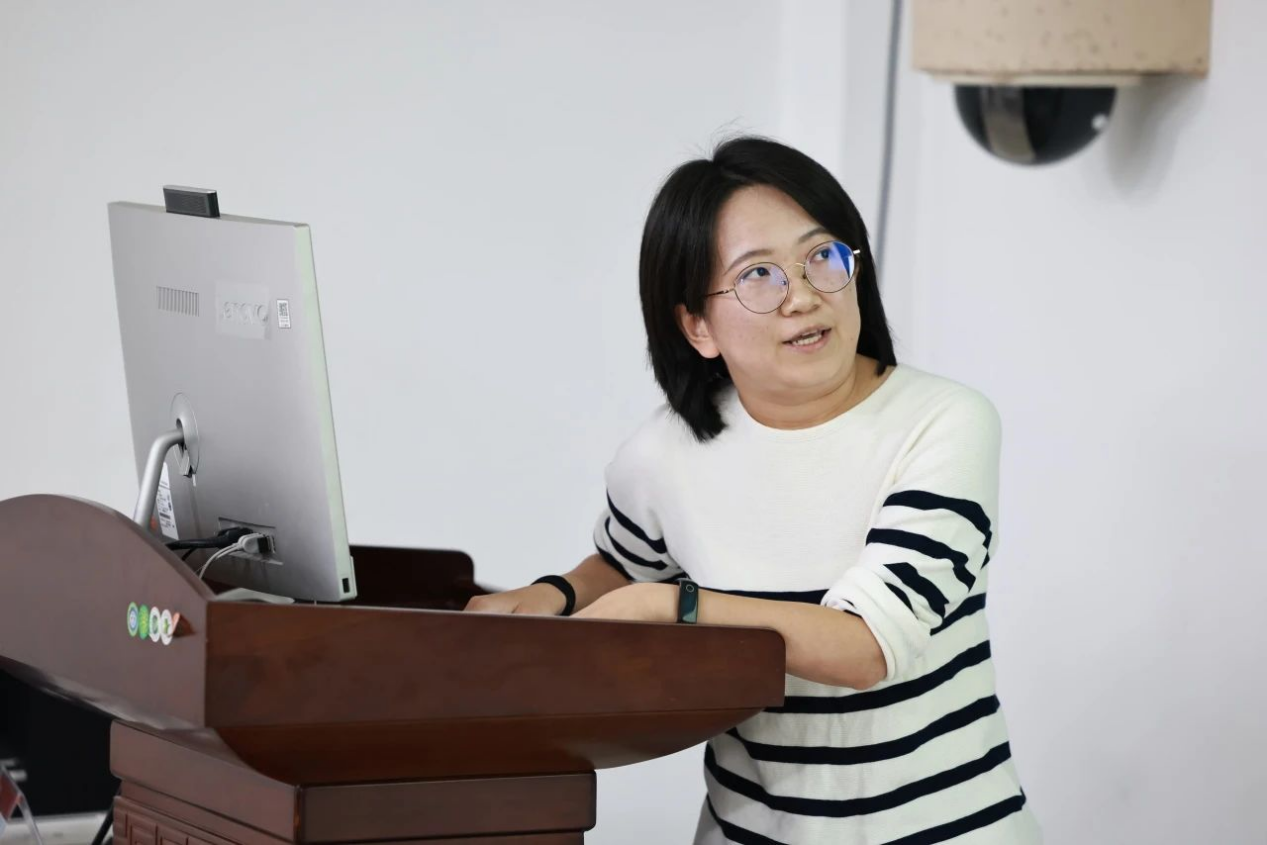
Sun Yixuan
After all the papers were presented and discussions were concluded, Professor Chen Long and Professor Xie Wen awarded the "Huiguang Award" for outstanding paper to Ph.D. candidate Wan Kexin from Huazhong University of Science and Technology for her paper "Trapped-Style Discipline: Control Methods and Processes of Out-of-Place Pyramid Scheme Organizations."

Award for Unit Three
Unit 4: Discipline and Tradition
On the afternoon, the forum proceeded to the fourth session with reports and discussions themed "Discipline and Tradition." The session was chaired by Professor Tian Geng from the Department of Sociology at Peking University. Professor Tian Geng and Professor Zhang Weizhuo from the School of Sociology at Renmin University of China served as discussants.
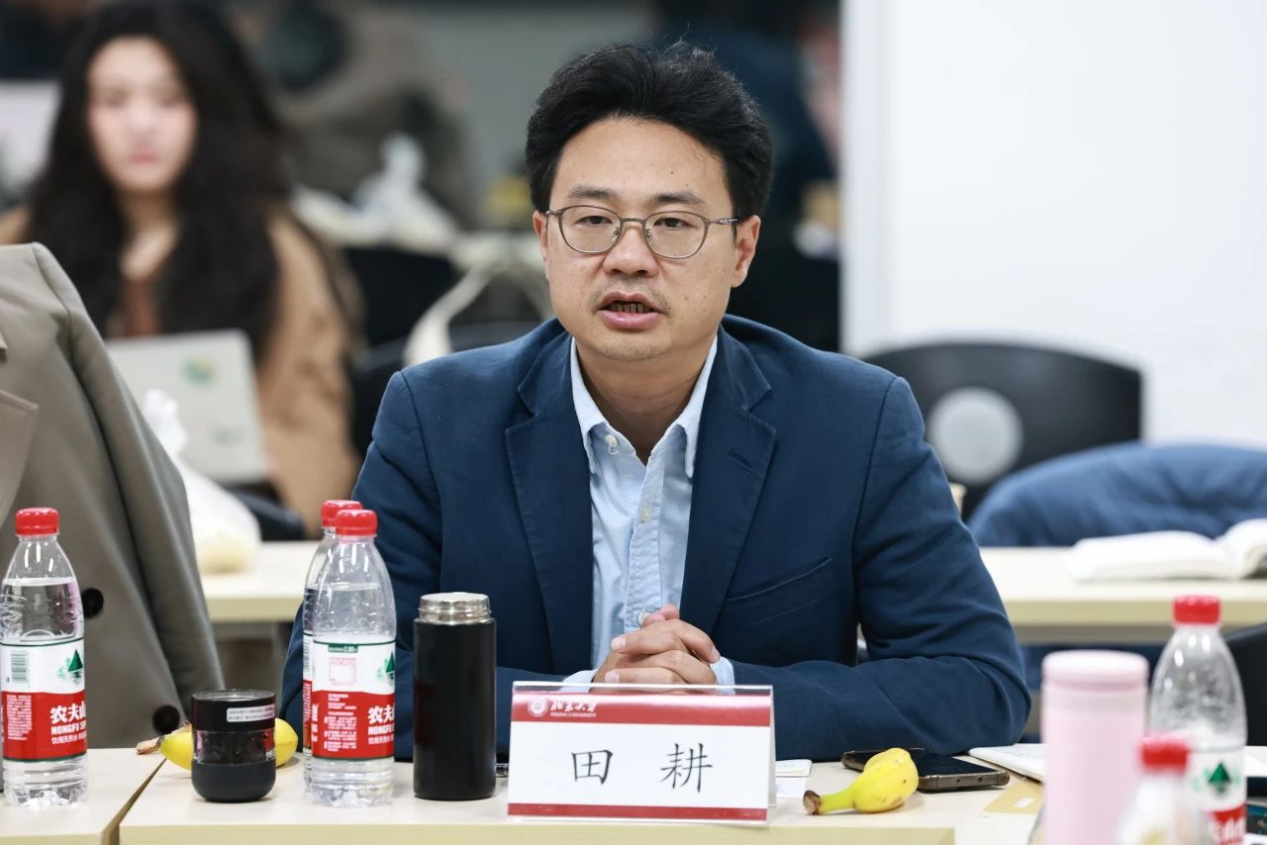
Prof. Tian Geng
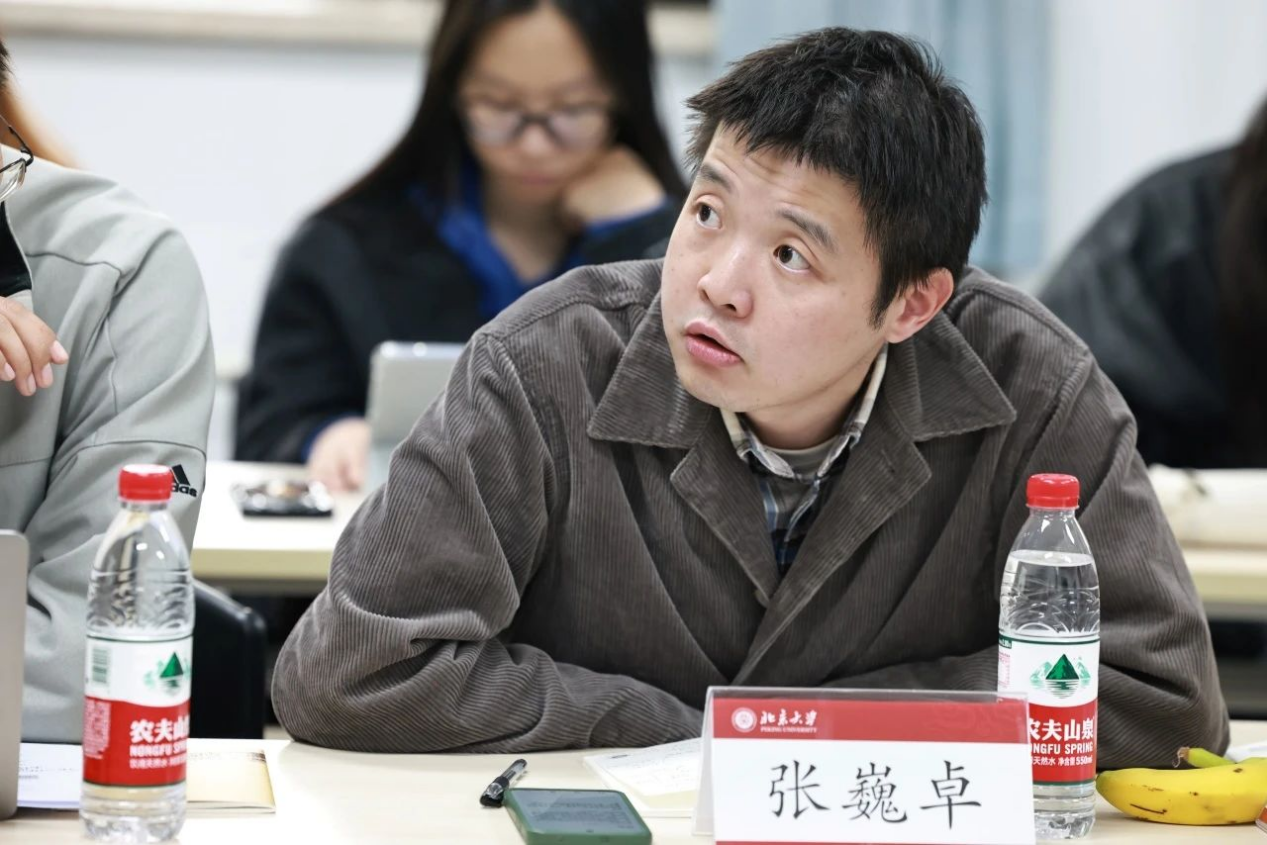
Prof. Zhang Weizhuo
First, Ph.D. candidate Liu Yuanyuan from Peking University presented her paper titled "Rediscovering 'Nature': The Threefold Transformation of the Community Research Paradigm of the Yanjing School Before the Anti-Japanese War." She primarily used degree theses from the Sociology Department at Yenching University, departmental publications, and newspapers and magazines as historical materials. By examining the sociological research at Yenching University before the outbreak of the Pacific War, the paper presents the dynamic process of the continuity, transformation, and evolution of community research's critical awareness and survey methods under different historical circumstances. The article identifies three stages: moving towards a "natural sociology," controlling "nature," and transforming "nature," with the transformation of "nature" always focusing on the social unit of "community" across different generations of Yenching scholars. It is evident that the community research tradition of the Yenching School has never departed from nature in the process of transforming it but has instead progressively approached a cultural analysis of "human beings" itself, based on the foundation of nature. In the discussion segment, Professor Zhang Weizhuo pointed out the need to place the paper's discussion within the broader context of scientific debates after the May Fourth Movement, analyzing several representative figures in conjunction with their personal life histories and research genealogy to clarify key concepts and the transformation of several critical junctures. Professor Tian Geng suggested that the organizational methods of "teaching and learning" and the evolution of research concepts within the Yenching School could be a direction for significant breakthroughs in this study.
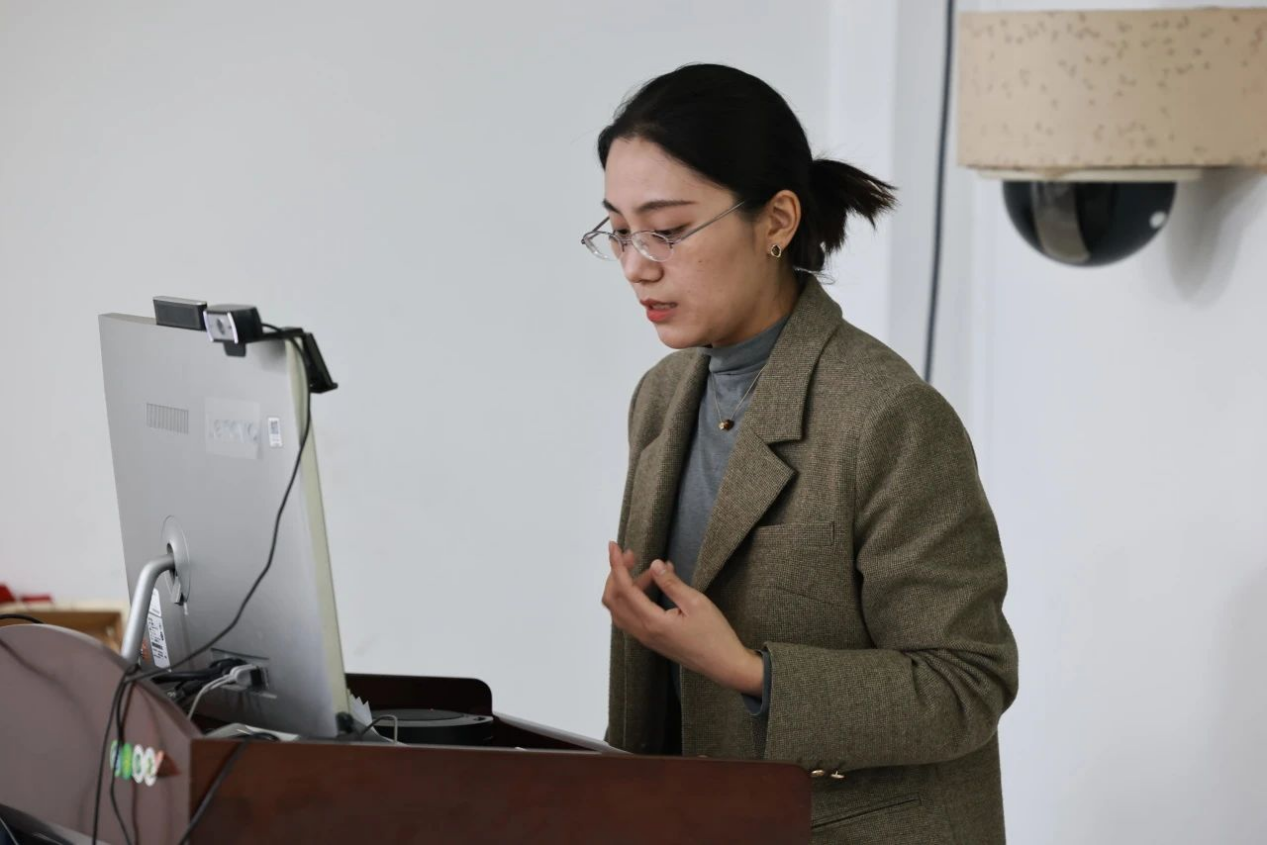
Liu Yuanyuan
Next, Ph.D. candidate Feng Zhiqiang from Central China Normal University shared his research "Nietzsche's Critique of Anglo-French Sociology and the Birth of German Classical Sociology." The paper attempts to reconstruct Nietzsche's critique of Anglo-French sociology, represented by Comte and Spencer, to highlight Nietzsche's insights into the ideals that unconsciously dominate Western sociology and his connection with German classical sociology. On one hand, Nietzsche believed that Comte's positivism always retained Christian value judgments, and his humanism was the essence of his positivism. On the other hand, Nietzsche criticized Spencer's social organism idea as a manifestation of "administrative nihilism," and his evolutionary ethics were based on the "herd instinct." Nietzsche's reassessment of decadent sociology can be further viewed as a dissatisfaction with the "culture" of the super-Greek human that yearns for the Apollonian tradition's super-animal "civilization." The two main founders of German classical sociology, Toennies and Simmel, formed their contrasting sociological identities from Nietzsche's "anti-sociology" thoughts. In the discussion segment, Professor Zhang Weizhuo noted that the establishment of "Nietzschean sociology" is debatable and that the differences between Anglo-French and German sociology should be analyzed to re-examine the cultural and civilization debate's historical context. Professor Tian Geng believed that the paper needs to re-examine Nietzsche's criticism of sociologists, understand its position within Nietzsche's thought system, and its relationship with the core concepts of sociology.
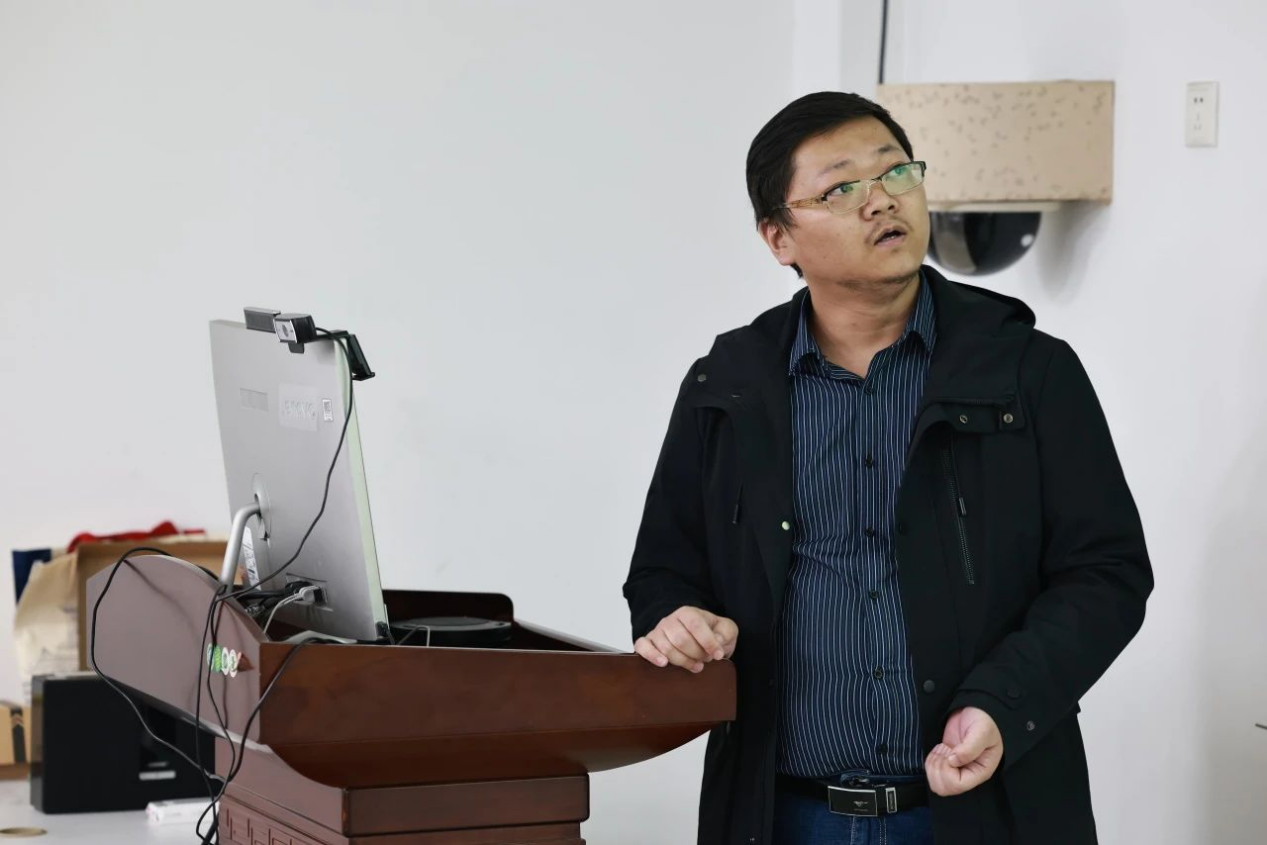
Feng Zhiqiang
Unit 5: Enterprise and Society
The fifth session, "Enterprise and Society," was facilitated by Professor Qiao Tianyu from the Department of Sociology at Peking University. Professor Qiao Tianyu and Professor Jiao Changquan from the School of Marxism at Peking University served as discussants.

Prof. Qiao Tianyu
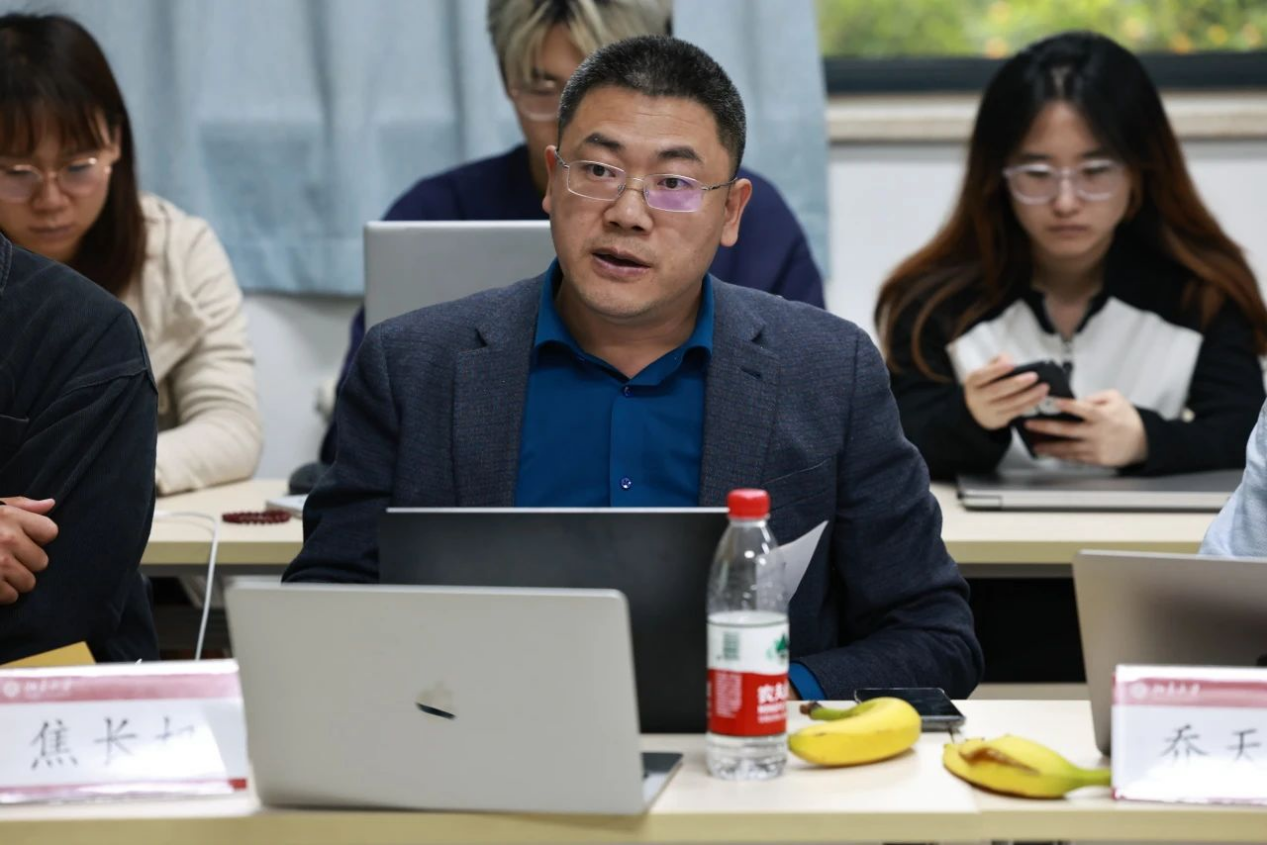
Prof. Jiao Changquan
Firstly, Ph.D. candidate Zhang Xiaohui from Peking University shared her research "From Home to Factory: The Succession of Space and Rural Industrial Transformation—An Examination of the 'Return to Village Factory Trend' in Yuecun, Wenzhou." Based on the concurrent realities of enterprise bankruptcy and the return to village factory trend in Wenzhou, the paper introduces spatial theory as an analytical framework, viewing rural industries as spatial strategies for economic transformation and outlining the three stages of rural industry changes over four decades before and after the reform and opening up. The transformation of rural industries from "domestic handicraft workshops" to "half-home, half-factory" as a spatial strategy can reduce rent costs, flexibly arrange production and labor allocation, and thus help expand market size and meet the diversified demands of the internet. In addition, population migration and village economic decline since the reform and opening up have led to a gradual replacement of the gentry class by young businessmen as the core force in village public affairs, manifesting as the transfer and redefinition of public spaces. In the discussion segment, Professor Jiao Changquan suggested grasping the important empirical phenomenon of the "return to village factory trend" and focusing the paper's discussion on the third stage. Professor Qiao Tianyu pointed out that the paper's response to the initial empirical problem consciousness was not sufficient and failed to demonstrate the explanatory power advantages of spatial theory.

Zhang Xiaohui’s Presentation
Next, Zheng Xianling from Nankai University presented his paper "Revisiting the 'Social Foundation': A Sociological Study of Interaction Details in the Operation of Navel Oranges." The paper distinguishes between two types of social relationships, rural and modern, based on whether ethics and morals are the basis, and observes people's social interactions in rural and modern societies during the agricultural operation process from the perspective of interaction details. In the agricultural operation and sales of navel oranges, fruit farmers and their children maintain good interpersonal relationships and strengthen relational capital to enhance the stability of direct sales. However, the premise of morals and ethics playing a constraining role in private relationships is that both parties are in the same social context; when facing dealers, farmers turn to modern social relationships. It can be seen that agricultural operation is a socio-economic activity that flows between rural and modern societies, and people's use of rural and modern social relationships effectively overcomes various organizational dilemmas, forming the social foundation of agricultural operations. In the discussion segment, Professor Jiao Changquan pointed out that whether the nature of rural and modern social relationships can be combined so seamlessly without contradiction is debatable. Professor Qiao Tianyu believed that it is necessary to more clearly and specifically present rural, modern social relationships, and the overall relationship structure from planting to sales.
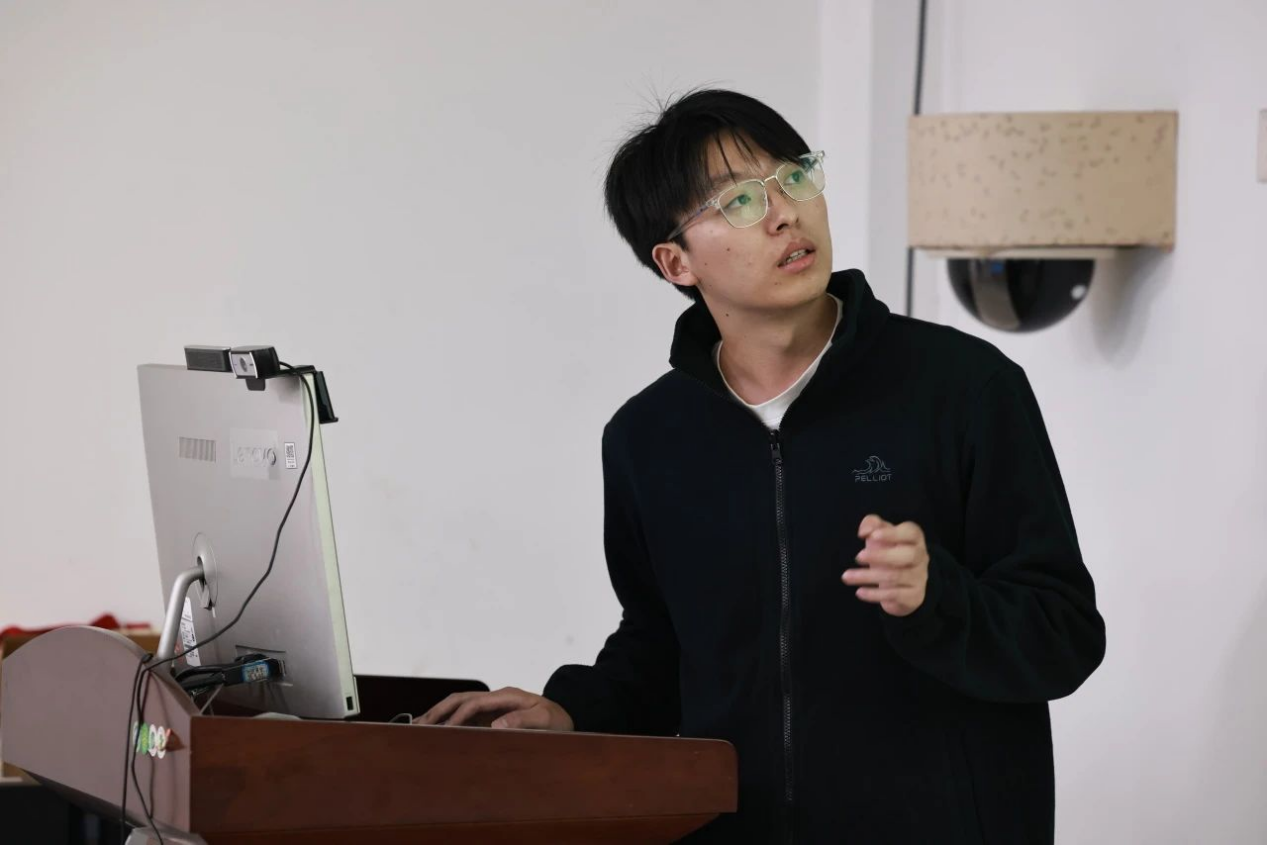
Zheng Xianling
Subsequently, Ph.D. candidate Wu Yumei from East China Normal University shared her research "Clan as Enterprise: The Dual Influence of National Ritual Governance and Local Folk Customs—Taking the Wang Sanwei Hall, a Modern Zigong Family Enterprise, as an Example." The author examines the local cultural background associated with large-scale indigenous commercial organizations in modern China from the perspectives of state-level ritual governance and spontaneous local folk culture. Taking the 19th-century Sichuan Zigong salt-producing family enterprise Wang Sanwei Hall as an example, the paper points out that the legitimacy of enterprise property and identity comes from the state's construction and recognition of clans; at the same time, some family enterprises build the public nature of the enterprise through local public sacrifices, giving it some characteristics of modern enterprises. However, this kind of vertically integrated enterprise finds it difficult to break through blood and regional restrictions, limiting the public nature and development of family enterprises. In the discussion segment, Professor Jiao Changquan believed that the complex issue of official-business relationships is always intertwined in the discussion of the paper and suggested returning the focus to the management, production, and operation issues that the paper aims to address. Professor Qiao Tianyu pointed out that the paper tends to equate national ritual governance with political capital, which should be clarified and explained, and the specific relationship between national ritual governance and local folk customs should be elucidated.
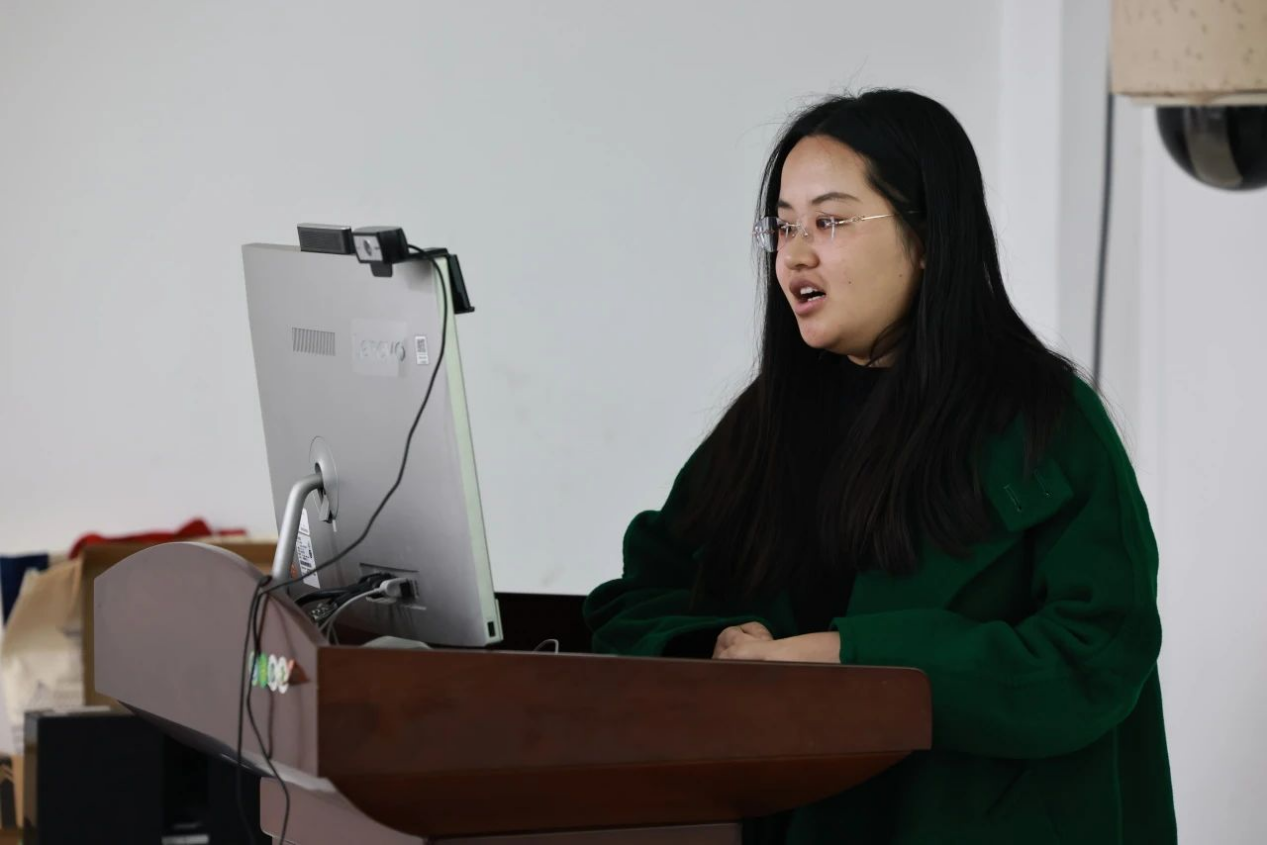
Wu Yumei
Unit 6: Women and Emotionality
The final session of the forum was themed "Women and Emotion," chaired by Professor Ling Peng from the Department of Sociology at Peking University. Professor Ling Peng and Professor Hou Jundan from the School of Sociology at China University of Political Science and Law served as discussants.
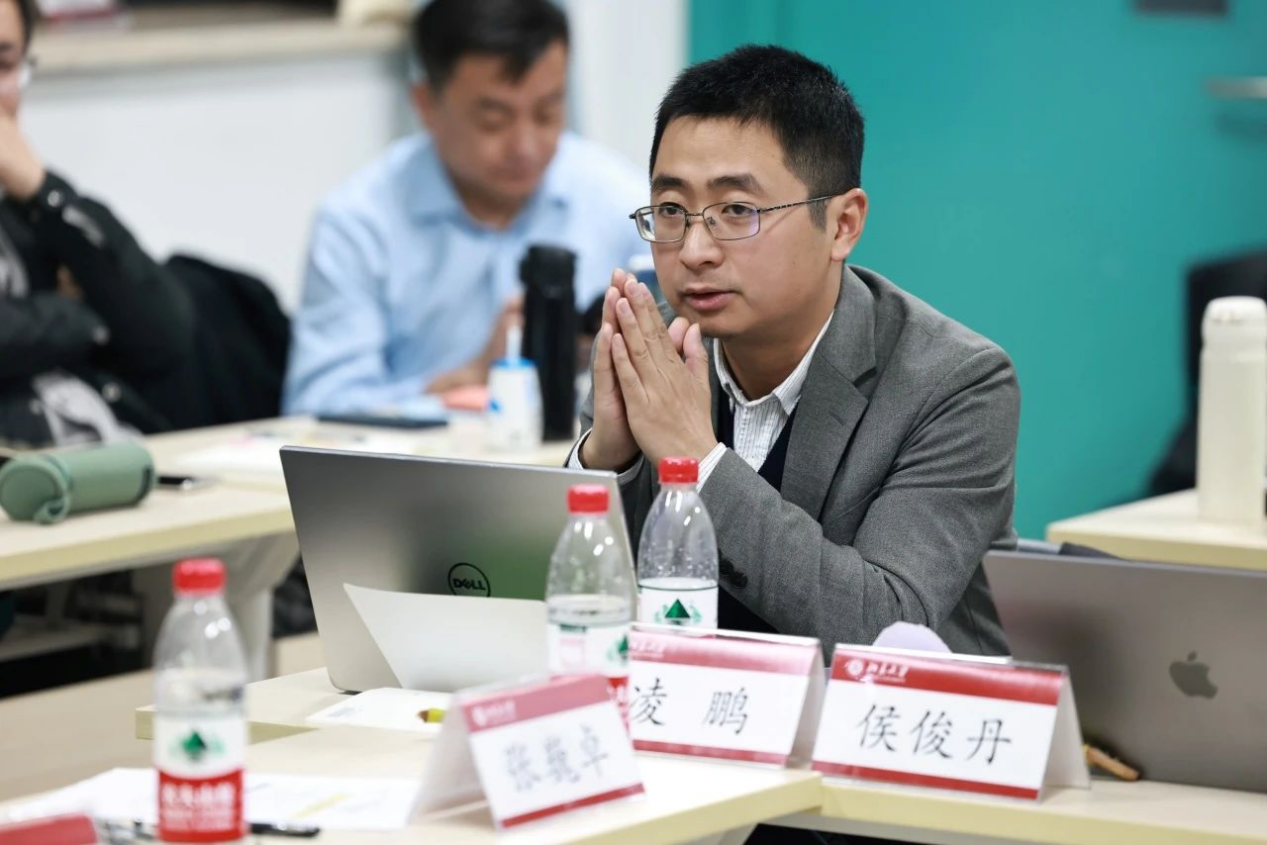
Prof. Ling Peng
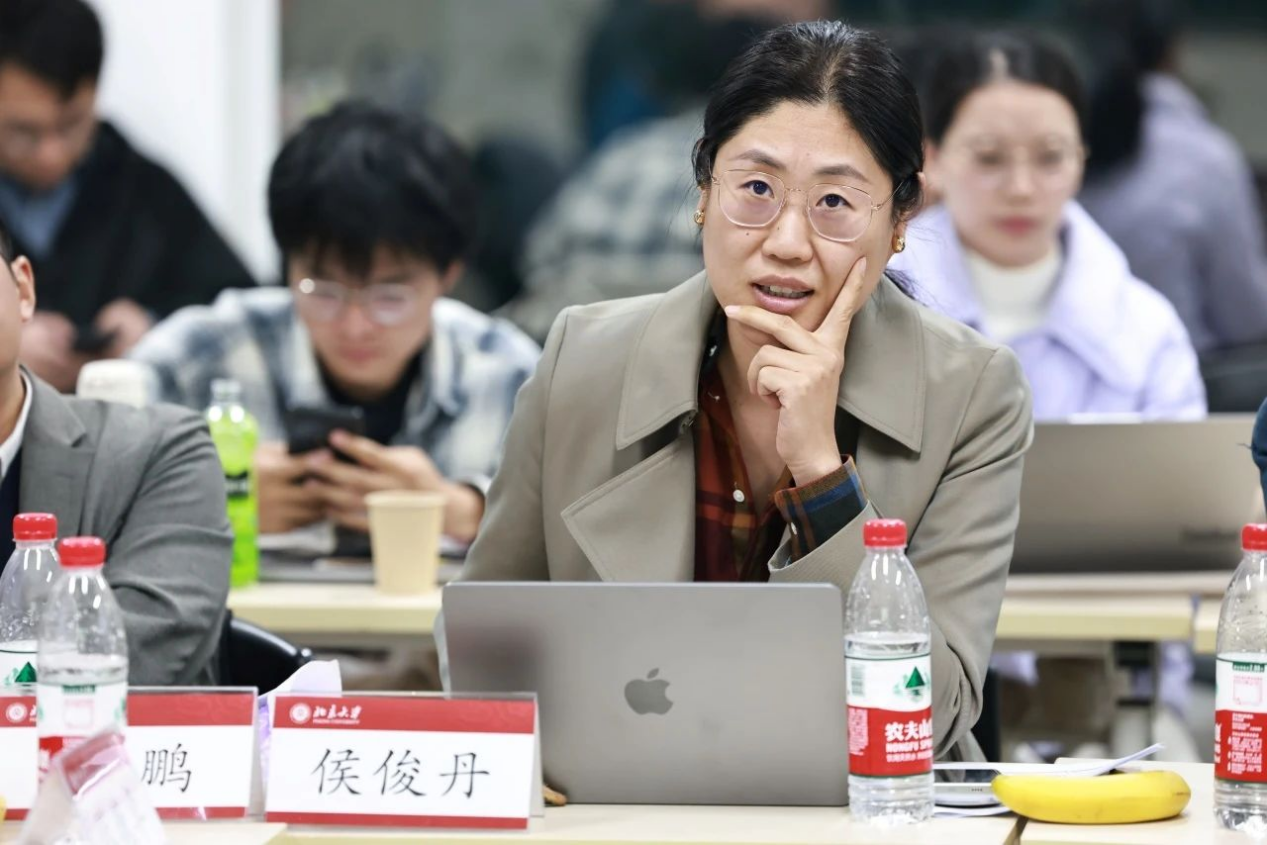
Prof. Hou Jundan
Firstly, Ph.D. candidate Chen Liyu from Peking University introduced her paper "Between Daughter and Daughter-in-law: The Ritual Classics' Perception of Women's Emotional Worlds—Taking the 'Broken Hairpin' in 'Mourning Attire·Notes' as an Example." Representing discussions like Weber's on Confucianism, rituals are often seen as external norms unrelated to personal will. The paper aims to challenge this perception by re-understanding the relationship between rituals and human actions. Using the example from the "Rites of Zhou: Mourning Attire·Notes," which states, "A married daughter in mourning for her parents, a wife for her in-laws, wears a mourning hairpin with a visible knot. After the initial weeping, the daughter breaks the head of the hairpin," it illustrates how a married woman, while mourning her parents at her natal home, must switch to a lucky hairpin to consider her in-laws' feelings if she needs to return early due to an emergency at her marital home; yet, she must also break the head of the lucky hairpin to express her grief for her parents. By analyzing the process of ritual deliberation, the paper shows how women, as agents of action, balance the priorities and urgencies when facing the dual relationships of father-daughter and husband-wife. In the discussion, Professor Hou Jundan suggested that the paper's argumentation was somewhat crude and needed a deeper appreciation of how classicists handle the oscillation, tension, and strain between the roles of husband and father to enrich the discussion. Professor Ling Peng proposed that emotions are interactive and emphasized the importance of understanding the relationships between men and women.
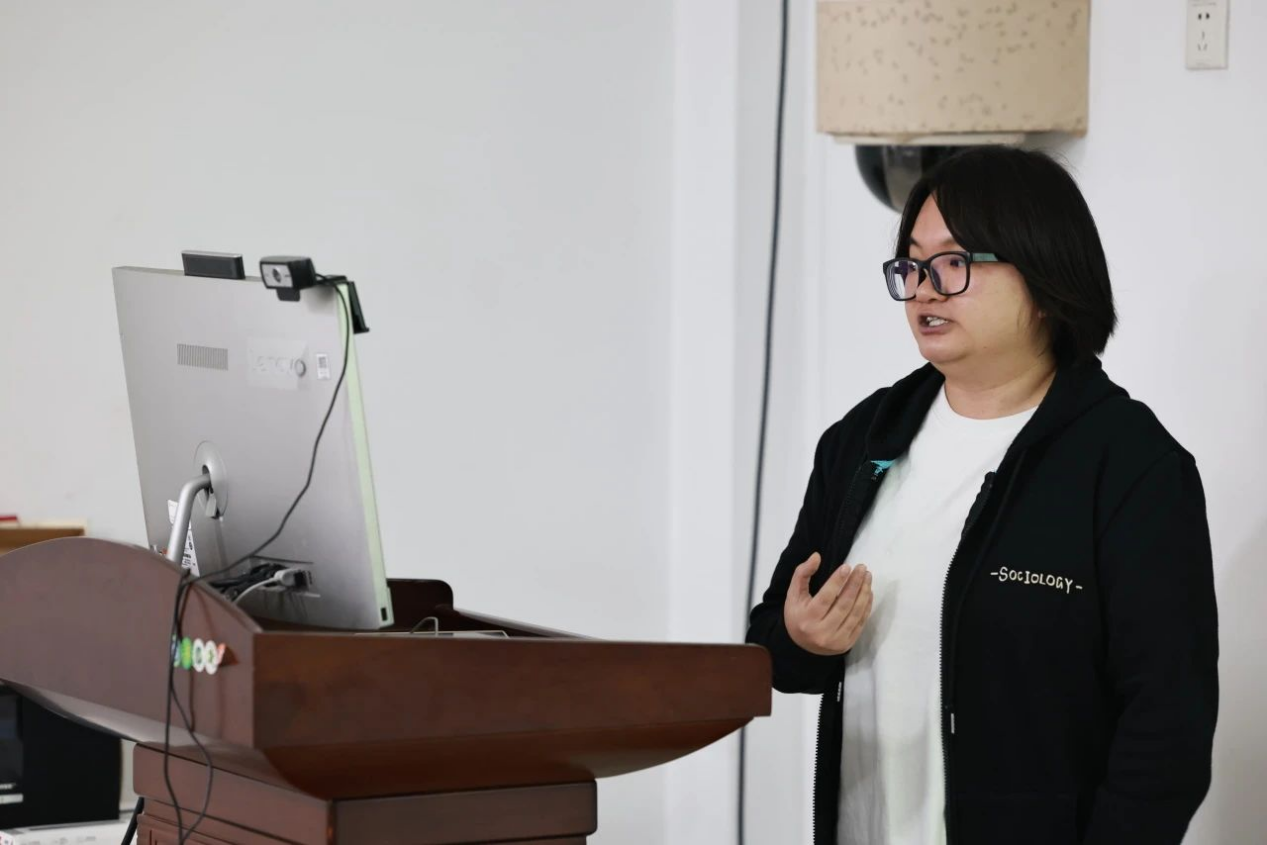
Chen Liyu
Then, Ph.D. candidate Xiang Jiangnan from the University of Chinese Academy of Social Sciences presented his paper "Female-Centered Kinship Networks—Taking Contemporary Wenzhou Kinship Practices as an Example." The paper addresses how women have transitioned from marginal to central kinship roles in contemporary Wenzhou. On one hand, the traditional gender arrangement of men working outside and women inside the home has loosened during the marketization process, with husbands or couples moving out, leading to changes in the living space based on the husband's residence, a temporary practice with fluidity. On the other hand, the one-child policy has reinforced women's central position: the reduction in the number and types of relatives has strengthened loose kinship ties, making kinship interactions an essential part of social life. Female relatives participate in the daily lives of other relatives through emotional care, which empowers women within their relationships. In the discussion, Professor Hou Jundan pointed out that the paper had several logical leaps and needed a more comprehensive discussion of family relationships to avoid falling into the trap of gender research that separates men and women. Professor Ling Peng believed that research on family, marriage, and emotions must delve into understanding subtle and nuanced contexts, conducting very detailed analyses of specific family events.
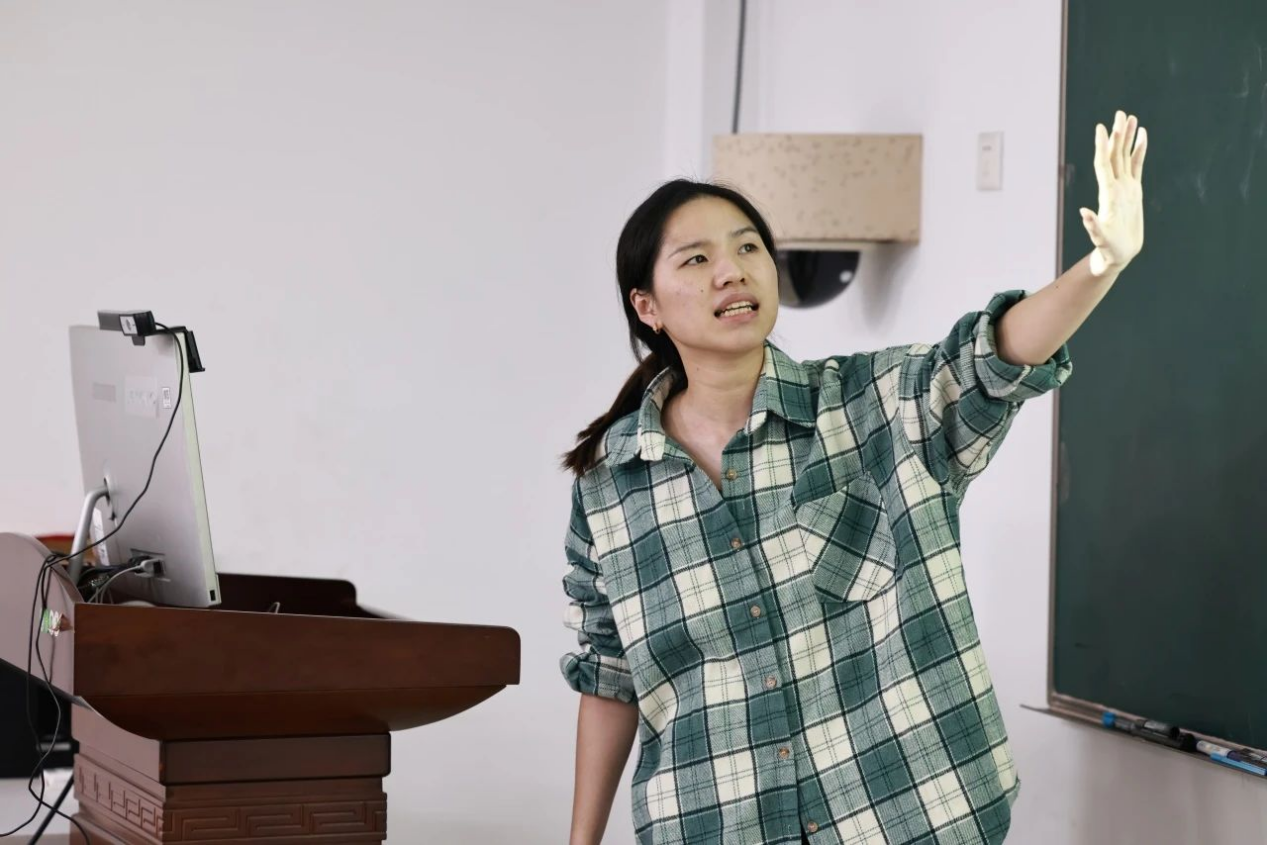
Xiang Jiangnan
After all the paper presentations and discussions in this session, Professor Ling Peng and Professor Hou Jundan awarded the "Huiguang Award" for outstanding paper to Ph.D. candidate Chen Liyu from Peking University for her paper "Between Daughter and Daughter-in-law: The Ritual Classics' Perception of Women's Emotional Worlds—Taking the 'Broken Hairpin' in 'Mourning Attire·Notes' as an Example."
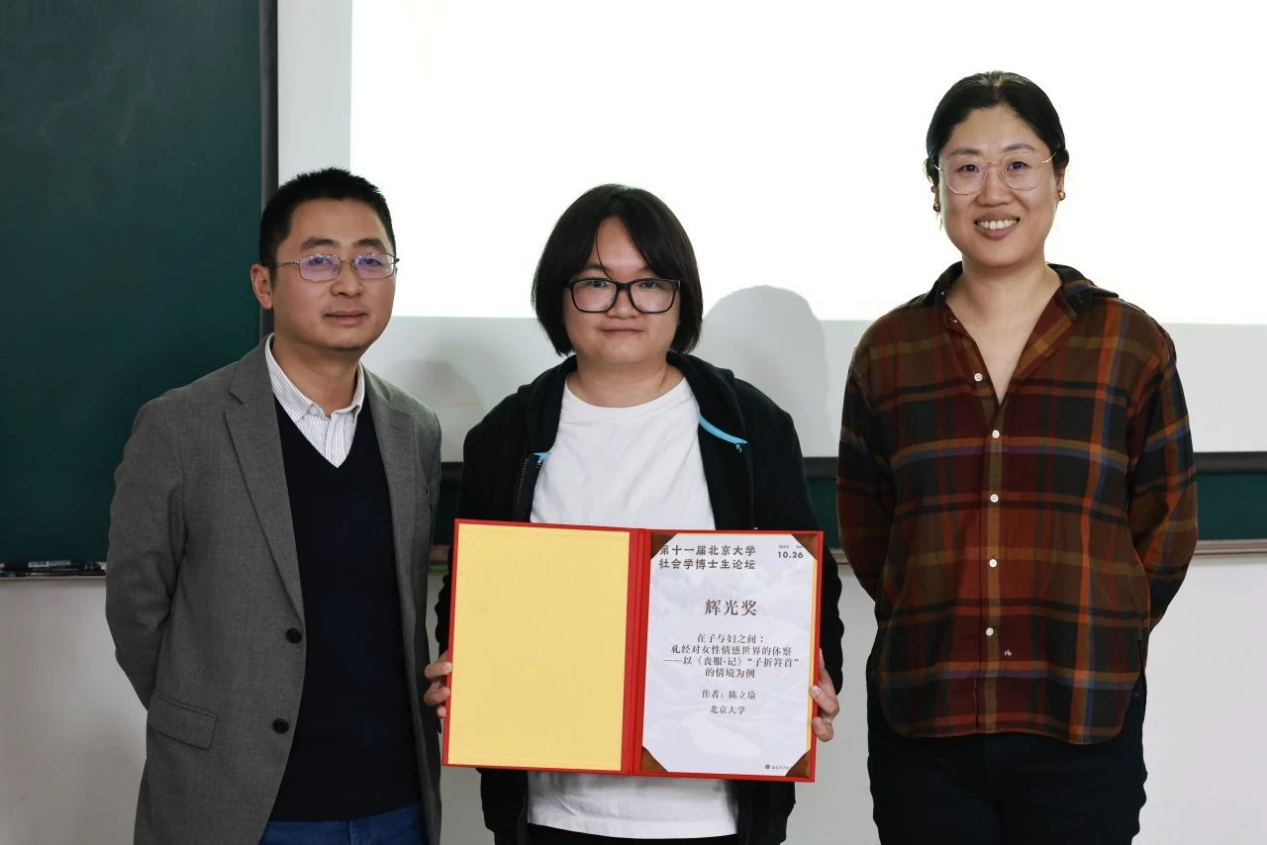
Award for Unit Six
By the end of the forum, the students engaged in conversations on academic, life, and mental issues for Ph.D. students, successfully concluding the forum.